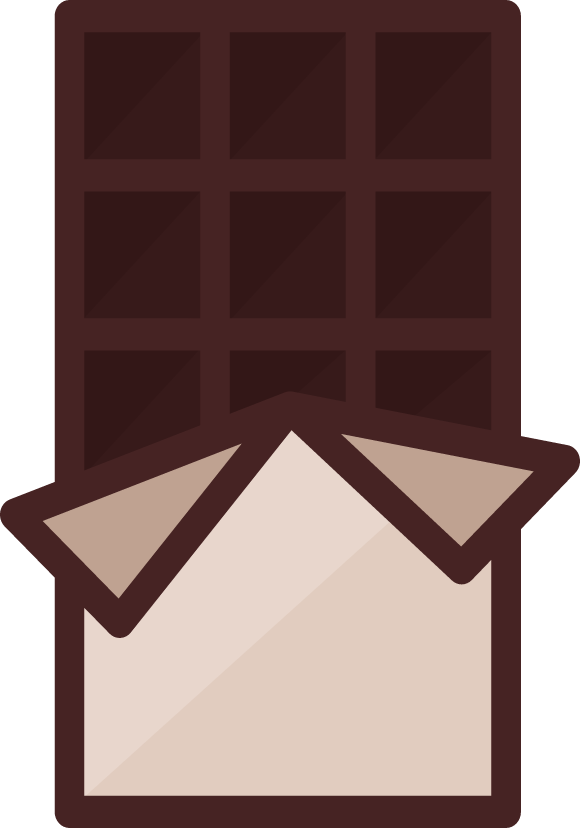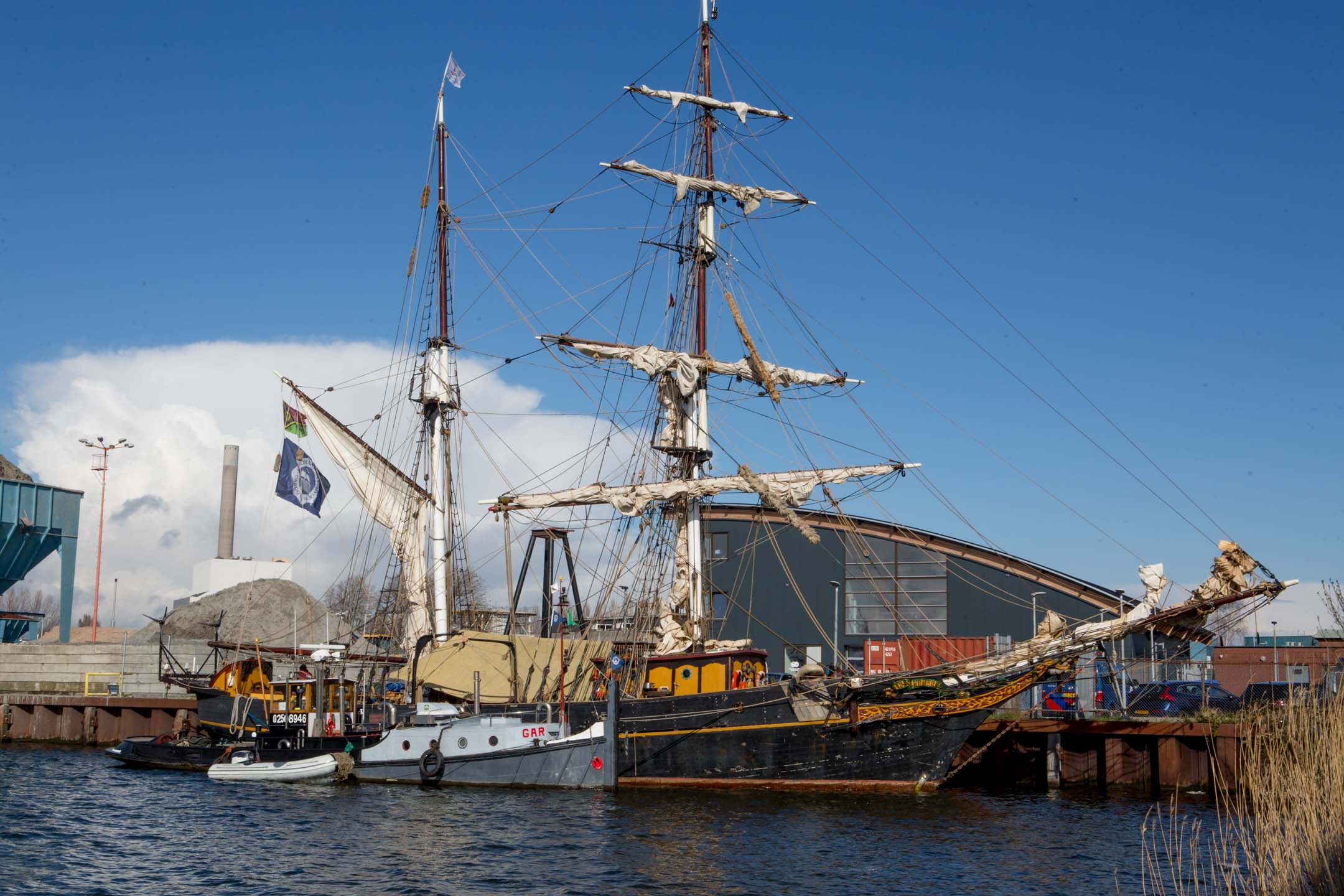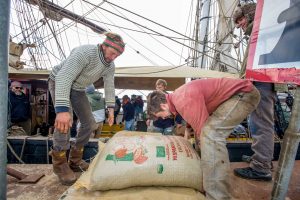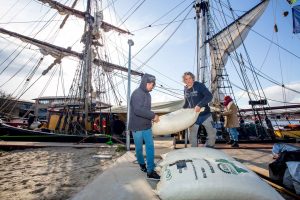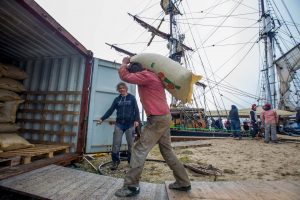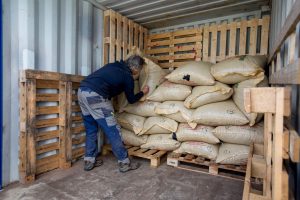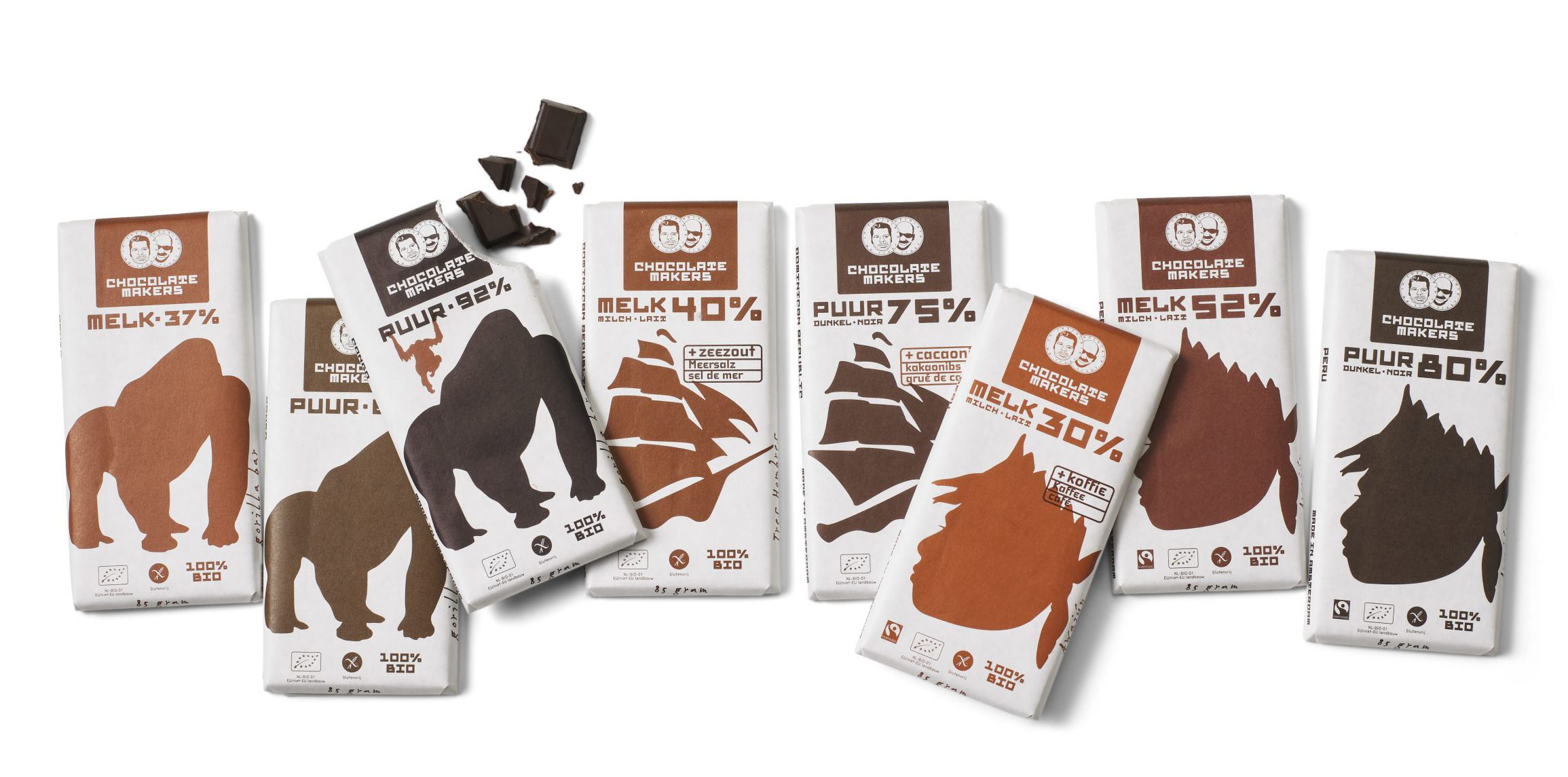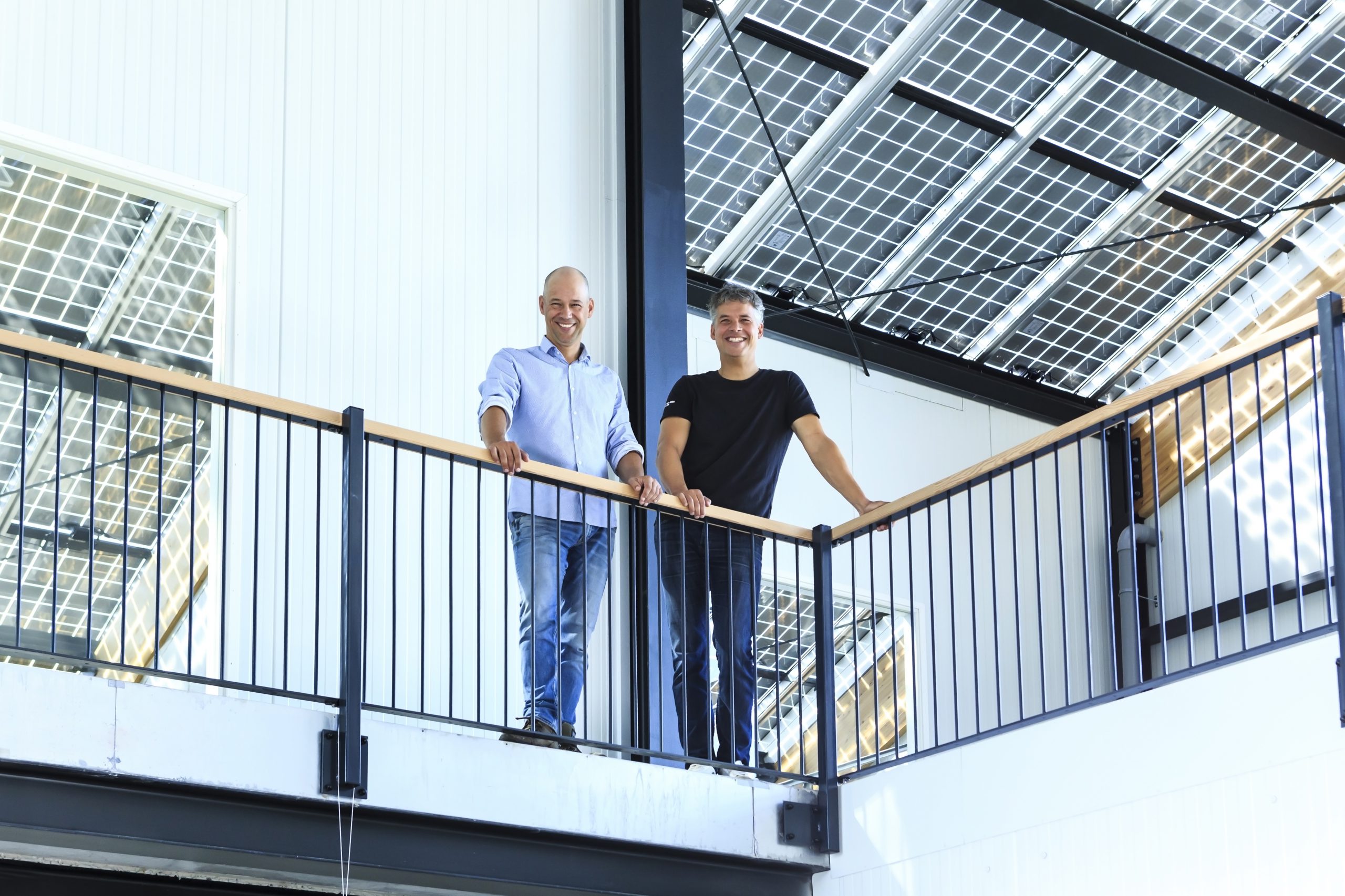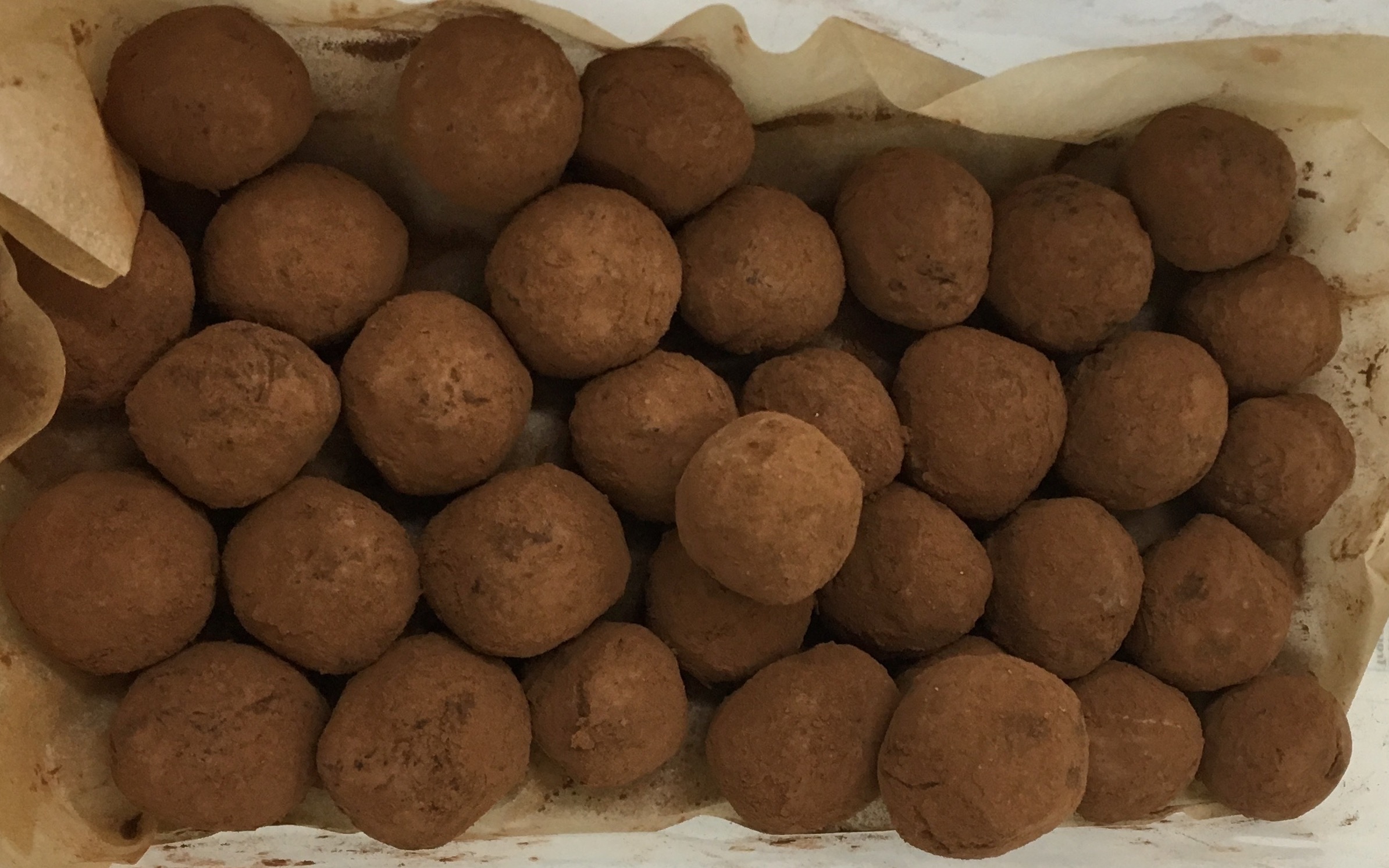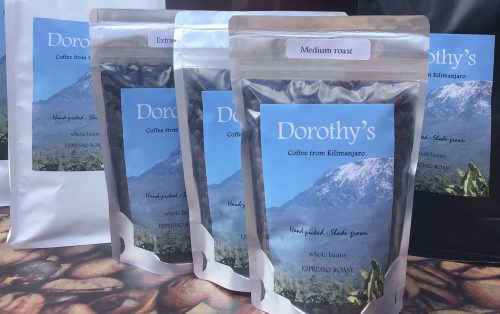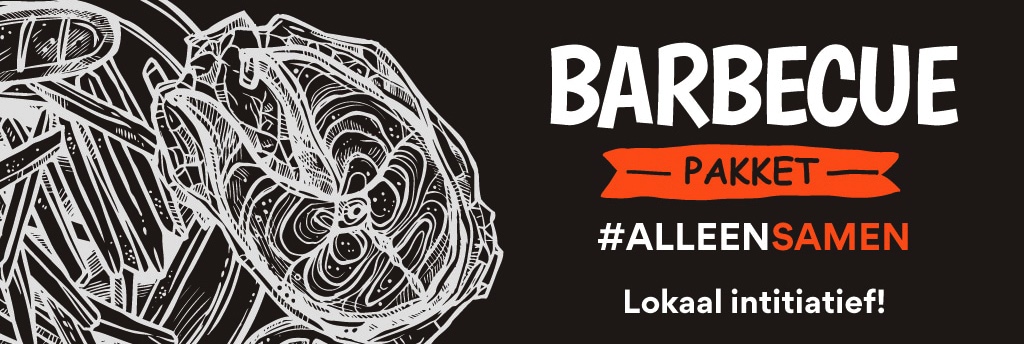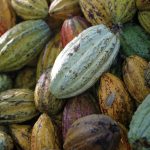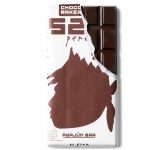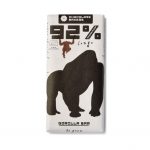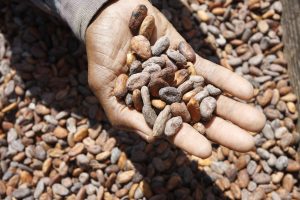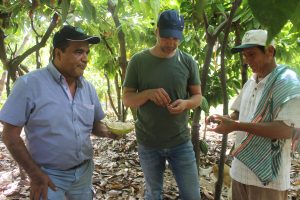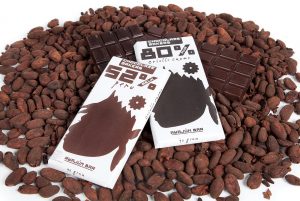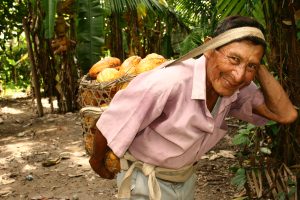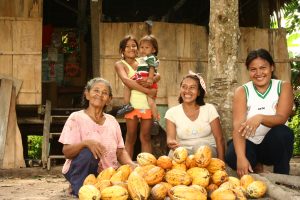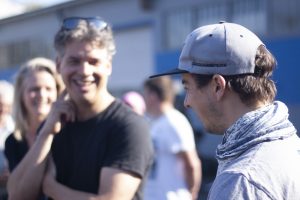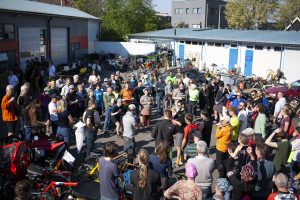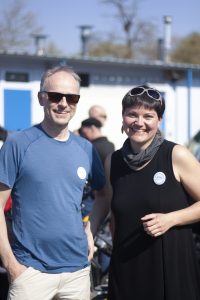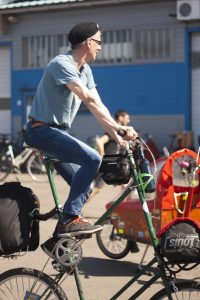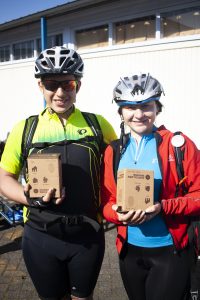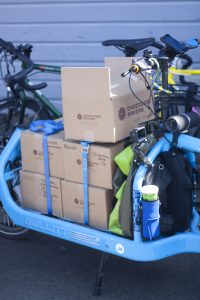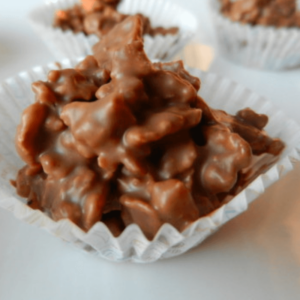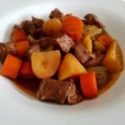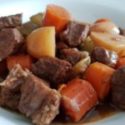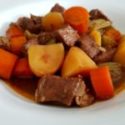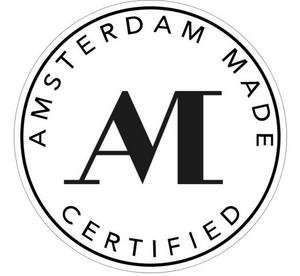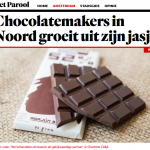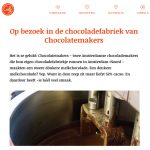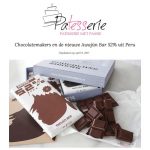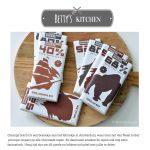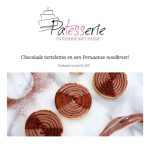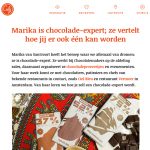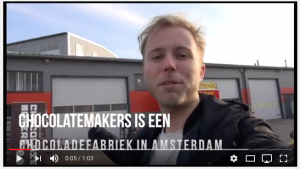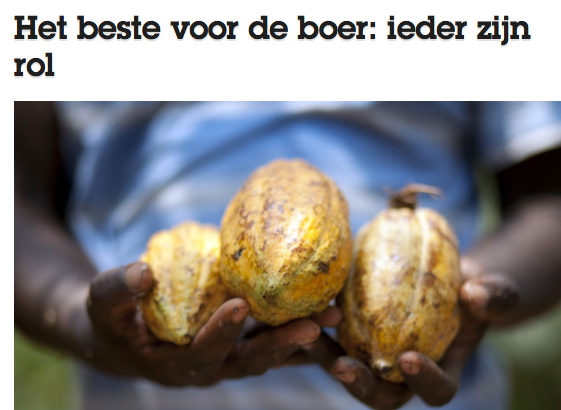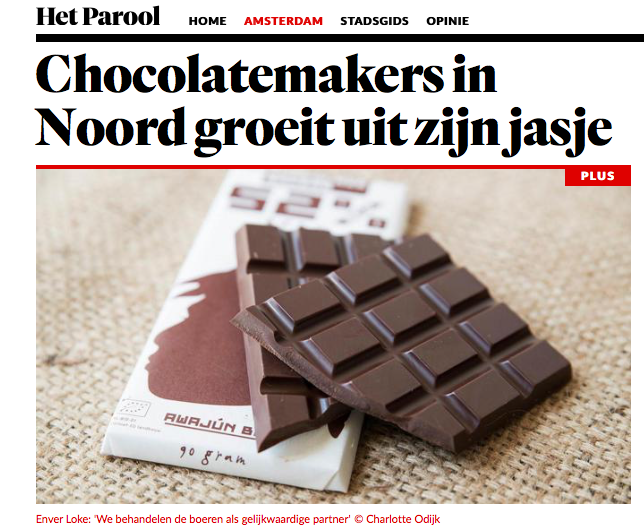After a long but successful journey of almost 6 months, the sailing ship Tres Hombres has returned to Chocolatemakers in the western harbour area of Amsterdam. In the hold: no less than 9 tonnes organic Trinitario cocoa beans and 300 kilos of natural cocoa butter from the Dominican Republic. Good for about 200,000 Tres Hombres bars.
Every year since 2012, the Tres Hombres has been bringing a large load of cocoa to the Chocolatemakers chocolate factory. Once again, it took about three months to cover the 13,822 nautical miles (25598 km) from the Dominican Republic to the Netherlands.
The idea behind the Tres Hombres fits seamlessly with Chocolatemakers' sustainability philosophy. Founder and owner Rodney: "In everything we do and make, sustainability is our starting point. Our chocolate factory has a roof that consists entirely of solar panels, which makes our production almost CO2-neutral. When we heard about the Tres Hombres 10 years ago, we immediately sought cooperation. That ship was named after three Dutch friends who dreamed of sustainable cargo transport by sea. They have beautifully restored a 32-metre brigantine from 1943. With people they trained themselves, they sail from Europe to America every year. They unload the cocoa at our own quay, right next to the factory - it couldn't be more energy efficient."
Two bags of traditionally mined sea salt (from the salt pans of La Palma) were also brought from the Caribbean to Amsterdam by wind power. "We use that salt for one of our most popular bars: the Tres Hombres 40% milk with a pinch of sea salt."
In the autumn, the ship will set sail for the Caribbean again.
Amsterdam is still the world's largest cocoa port. But making your own chocolate? That hardly happens anymore. At Chocolatemakers in the western harbour area of Amsterdam, they do everything themselves: from roasting the cocoa to packing the bars.
In a state-of-the-art chocolate factory, irresistibly delicious organic chocolate is made there under the direction of the founders and master chocolate makers Rodney and Enver.
Roof of solar panels
Rodney: "When you are in our factory, you should first look up: the - transparent - roof is one big solar panel. The factory This means that we can run entirely on solar energy. And we also work with zero waste. The transport of the cocoa to Amsterdam is also done sustainably. Rodney: "We transport part of our chocolate in a traditional sailing ship from 1943. CO2 emissions: absolutely zero."
Sailed to the Netherlands
The ship is called the Tres Hombres and is named after three Dutch friends who dreamed of sustainable freight transport by sea. Since 2012, the ship has been carrying a substantial load of cocoa to the Netherlands. On wind power it is brought from the Caribbean to the quay in Amsterdam. "Last year we also received a shipment of organic Criollo for the first time. cocoa beans delivered. These come from CooAgroNevada, a women's cooperative from the Sierra Nevada de Santa Marta nature reserve in Colombia. The cacao comes from centuries-old cacao varieties. Primal cocoa, you could say. And we have used it to make a very special bar: Pure Love, chocolate to fall completely in love with."
Chocolatemakers and Fairtrade Netherlands join forces to work towards fair payment for farmers. Both organisations have been working for years on better payments for farmers. From now on, they will work together even more actively on this. From 28 April 2020, the first Fairtrade certified chocolate bars will be available.
As of March 2020, Chocolatemakers is not only organic but also officially Fairtrade certified. Since its establishment in 2011, Chocolatemakers has been paying a stable and high price for its cocoa so that the farmers earn a living income. Fairtrade recently launched the "living income reference price" for cocoa: the price farmers should receive for their cocoa to live on. They are also setting up pilot projects on "living income" and the Fairtrade minimum price and premium have recently been increased by 20%.
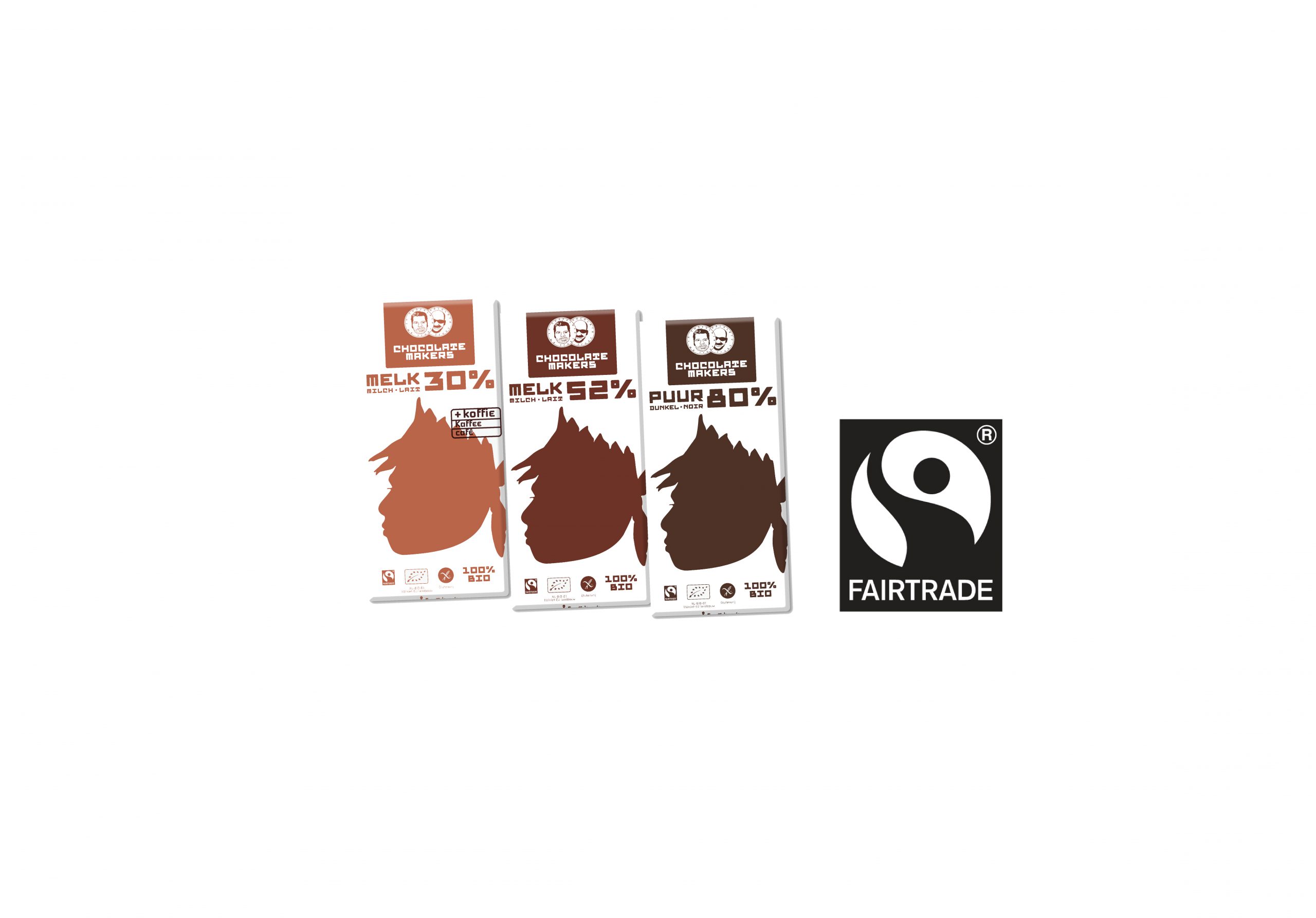
These positive developments are in line with Chocolatemakers' approach for a sustainable cocoa sector. Chocolatemakers co-founder Rodney Nikkels says : "It would be great if Fairtrade and other industry players could provide more farmers with a living income. We want to support the debate on a living income for cocoa farmers from the 'inside out', which is why we now also carry the Fairtrade mark.From 28 April, the first bars from Peru will be on sale at EkoPlaza and online via the Chocolatemakers webshop. Around 2 May, the first Fairtrade cocoa beans from the Dominican Republic will arrive in Amsterdam in a special way. The beans were transported in an entirely CO2-neutral manner on the sailing ship Tres Hombres.
More income for farmers thanks to factory in Peru
Extreme dependence on the price of cocoa beans in the world market and the influence of a few big players in the cocoa industry are the root causes of the unfair incomes for farmers. Besides a good price for the cocoa beans, more value can be created in the producing countries themselves. The first Fairtrade certified chocolate bars, the Awajún bar, are therefore partly made in Peru and partly in Amsterdam!
Chocolatemakers has set up a cocoa processing plant together with the NorAndino cooperative to process the cocoa beans into mass in Peru. The second step (from the mass to the chocolate bar) is done in Amsterdam but will also be done in Peru in the future.

These are turbulent times, but also a time in which many wonderful local initiatives are emerging. Such as this one from our customers.
Look below and order beautiful products, experience the nice initiatives and support the local entrepreneur! Thanks a lot!
Amsterdam
Rather Here, the Teahouse from Amsterdam North, makes the most delicious pies and quiches and they come to bring it home too! Click here â†"
FC Hyena, is a Boutique Cinema and Petit Restaurant located on the banks of the IJ, they have new take away menus every week, you can also order gift vouchers. highly recommended
Tea Pigeon : Being attentive is sometimes quite difficult, which is why we like to help you. We understand very well that personal gestures sometimes get lost in the hectic of everyday life. But because we believe that small, personal gestures can make the difference, Theeduif simply helps you to send that extra bit of attention. In the form of a cup of tea by post. Since recently, they also send chocolate from Chocolatemakers along with the tea card. For some extra happiness!
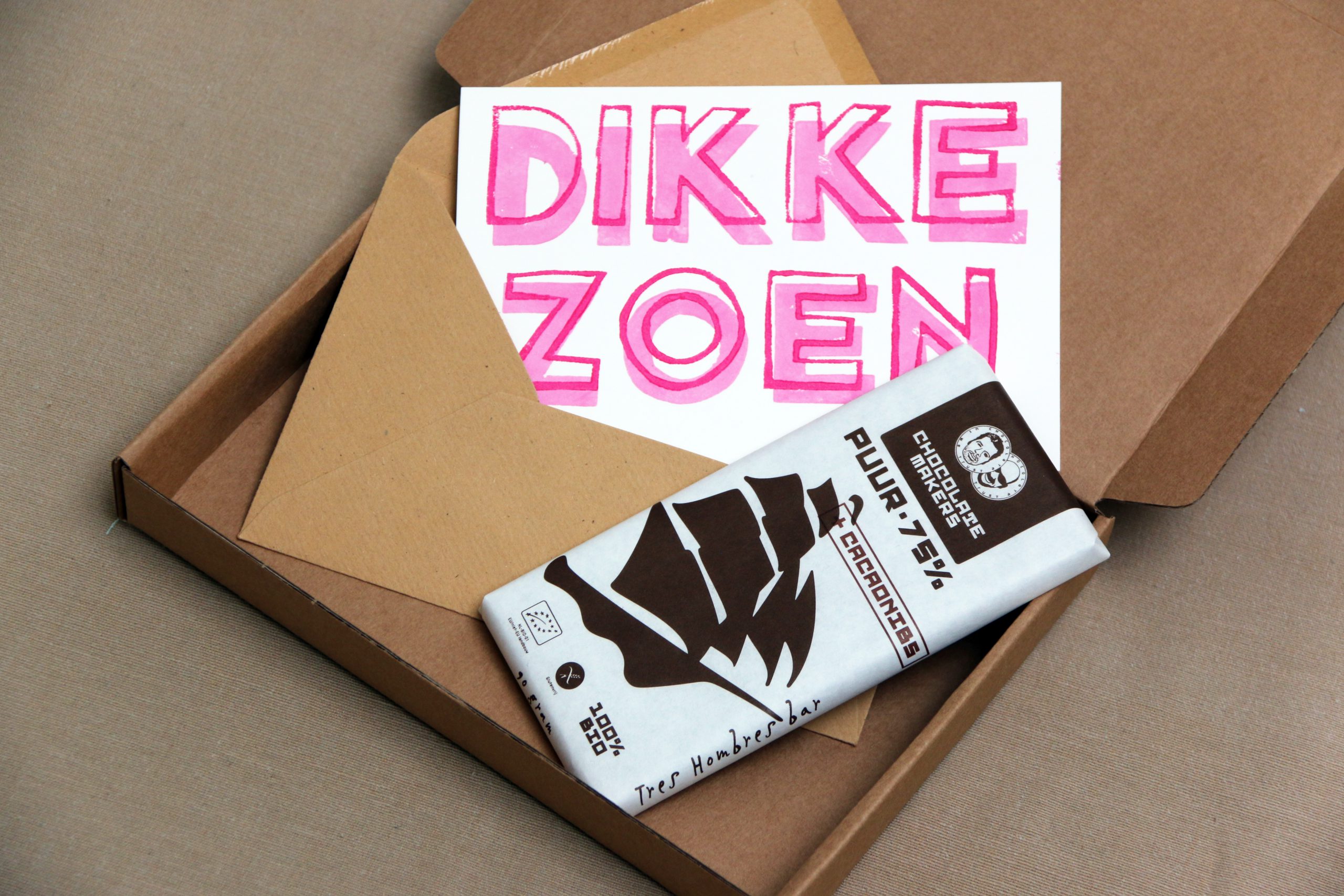
Support Your Locals Amsterdam The hospitality industry is on its last legs. That it is a disaster for chefs and restaurateurs is obvious. Less visible are the local producers who often depend on the hotel and catering industry for a large part of their sales. While supermarket shelves are being raked empty, entrepreneurs cannot sell their beautiful, locally produced goods. In Amsterdam, producers have united to offer a #supportyourlocalsNL Amsterdam package with products from: Mama bakery, milkman MOMA, Instock, Brandt & Levie sausage makers and Lindenhoff. From the classic grocery box and the snack box to special editions during the holidays: order your box at supportlocals.nl. Delivery only in Amsterdam and surroundings.
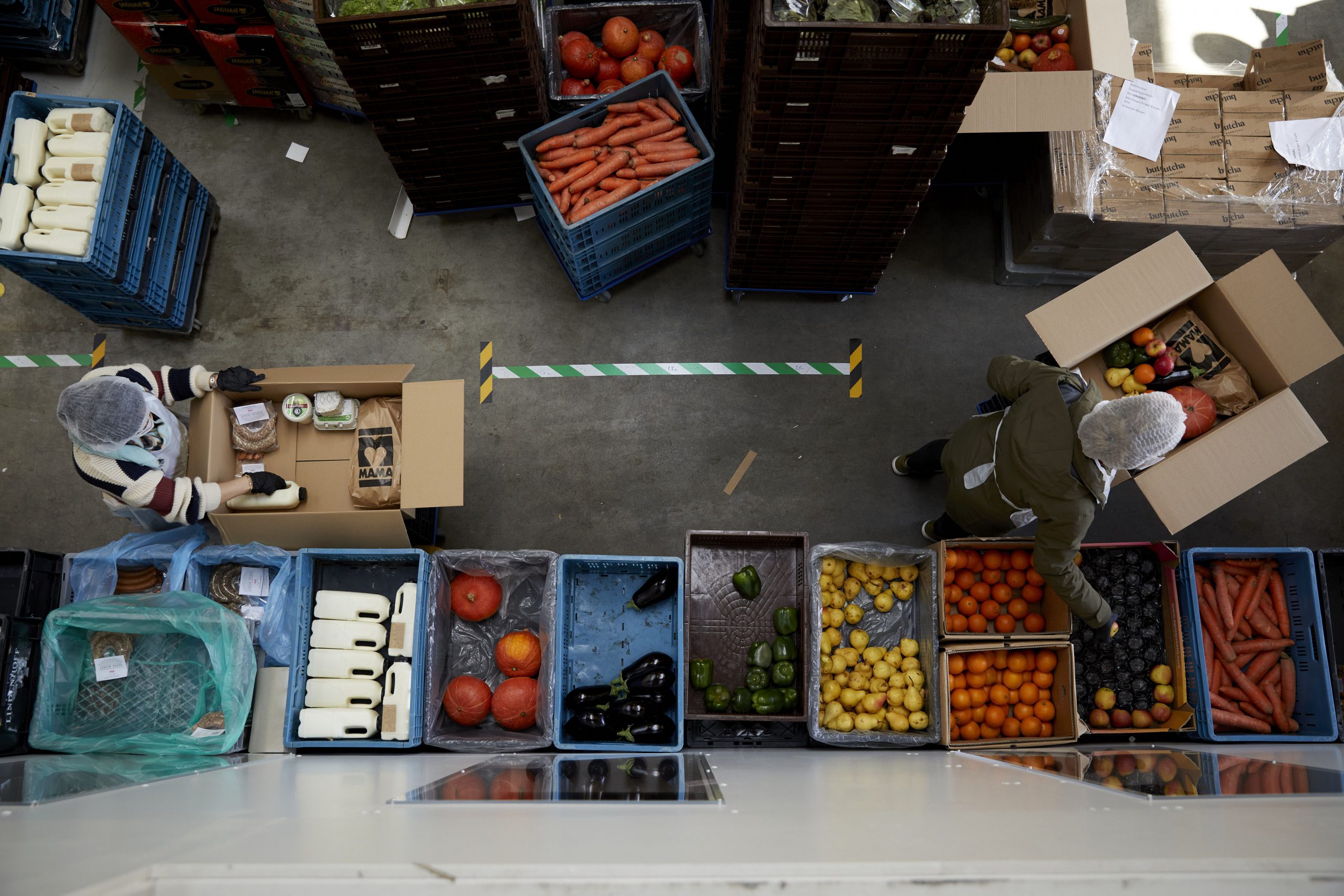
The Crate De Krat is the most sustainable meal box in the Netherlands and only works with suppliers, farmers and growers from the Netherlands. Every week, we put together tasty Krat boxes containing products that are in season, preferably organic and above all inspiring. The Krat chefs get to work with surprising recipes and cook three meals. There is also a special crate at the weekend, which is mainly filled with all kinds of delicacies. Order your newspaper via www.dekrat.nl
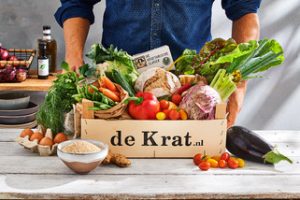
Chef Centraal: Chef Centraal is a new catering wholesaler in Amsterdam that buys its products from local and sustainable producers. Due to the stagnation of the catering industry, they now also deliver to the home and their unique products are available to every home chef. Read more at www.chefcentraal.nl/
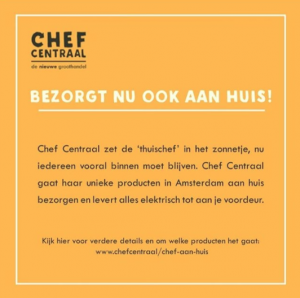
Amsterdam in a Box: Amsterdam in a Box was started by a group of young entrepreneurs who love local entrepreneurship and think that boring and impersonal gifts are a thing of the past. So you can surprise your colleagues or business associates with a festive Amsterdam gift. With an Amsterdam in a Box, you'll receive a piece of paper filled with delicacies that make you long for the canals, the Vondelpark and the Dam. Read more at www.amsterdaminabox.nl
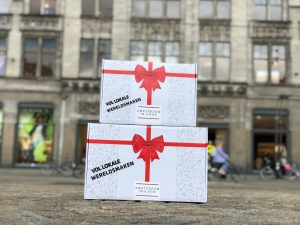
Groningen
Healthy Planet in the shopping street of the UMCG may work 'a little' again in their ToGo in the University Hospital. Because they haven't sold any chocolate bars for the past 6 weeks, the end date is rapidly approaching, and nurses and doctors check the dates. If it's past the date, they won't buy it, unless it's at greatly reduced prices. But they have found a solution: a delicious recipe for chocolate truffles!
Dorothy Ngarina buys, roasts and packs the best quality coffee herself from her home region of Kilimanjaro in Tanzania. She works together with the coffee farmers she knows personally and with the sale of Dorothy's Coffee she supports orphans with school fees. Delicious coffee with a good story. Would you like to try it? Then order a nice sample pack with 3 mini-packs: medium roast, dark roast and extra dark roast. Or do you know someone who deserves a boost in these strange times? In the web shop you can also order a "homework package" or a "gift package".
Hilversum
Il Divino a lovely wine shop in Hilversum, together with other local entrepreneurs, offers delicious sample packages and brings them to your home.
Are you a customer of ours and do you have a great initiative?
Then please Contact us and we will add you to the list!
We love chocolate, who do you love?
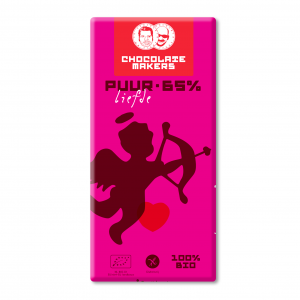
Mmm. there it is, the chocolate love of your life: the Valentine's Day bar 65% pure love. Chocolatemakers is developing a delicious flavor: a fruity Criollo cacao variety together with women's coöperation CooAgroNevada from Colombia. This cocoa can be tasted for the first time in the "special bar" for Valentine's Day. Give it to your loved one or just for yourself: ¡Te amo!
Cocoa from women's coöperation Colombia
The bar's Criollo cocoa beans come from CooAgroNevada, a women's coöperation from the Sierra Nevada de Santa Marta Nature Reserve in Colombia. Originally a coffee coöperation set up by women since Colombia's civil war, it grew in recent years into a cacao collaboration with Chocolatemakers.
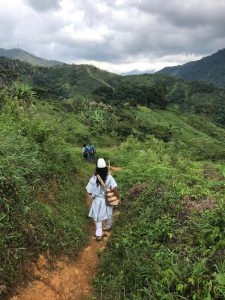
"We get our coffee beans from here and at some point thought, why not cocoa beans too? Coffee and cocoa both grow here in the area. Together with the coöperation, Progreso and the Rabobank Foundation, we did research so that the beautiful Criollo cacao variety could be grown more here."
Our first harvest of cocoa beans was transported by the sailing ship the Tres Hombres to the quay of the chocolate factory in 2019 and then processed into delicious organic chocolate. That promises more Colombian Criollo cocoa at Chocolatemakers in the future!
The Pure Love 65%
The Pure Love 65% has a flavor nuance of cherry, raisins and dried plums. A fruity flavor that comes naturally in this Criollo cocoa and is extra expressed by the light roasting in this chocolate. Ingredients: 58% cocoa beans, 7% cocoa butter, 35% sugar
Do you want to give a delicious gift to your loved one? Choose a delicious package, add a personal text and we will send the package including a nice card with love in the post.
Chocolatemakers makes strong chocolate from bean to bar 100% in-house
What started as a boyhood dream for Enver and Rodney of Chocolatemakers, making chocolate themselves, grew into the opening of the world's most sustainable chocolate factory. The founders expect to produce 200,000 kilos of chocolate in the factory, which will be open to the public from 5 October. Large quantities of chocolate bars will leave the factory that many thousands of fans in the Netherlands, Belgium and Germany consume every day.
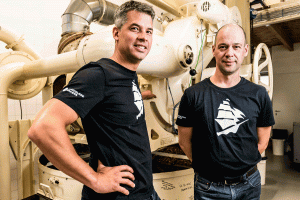
With this, we are realising a long-cherished dream. From our very beginning in 2011, we wanted to show people how chocolate is made. And not the mass-produced chocolate from mega-factories, but the artisanal process where quality rather than efficiency is key. Where the focus is on the bean, its origin and its fantastic flavours. We bring the human touch back into the process and you can taste that,' say Rodney Nikkels (48) & Enver Loke (45).
Sjakie and the...
Sustainable chocolate factory, of course. But that's not so natural. Where can you find a chocolate factory where chocolate is made entirely in-house, from bean to bar? Only when you have mastered all the steps of chocolate making can you call yourself a true chocolate maker.
Chocolatemakers. Where at present 60-70,000 tonnes (60-70,000 kilos) of chocolate are made from beans to bars and couvertures in-house, the two chocolate makers expect to produce 200 tonnes of chocolate in the near future, and even 400 tonnes in the long run.
The Dutch chocolate brand shows that the entire cocoa chain, from farmer to consumer, can be transparent, fair and sustainable. Rodney explains: 'That means that we innovate on all fronts . We look beyond fair trade or organic: environmentally friendly transport, a zero-waste production process and nature conservation are also part of it. We believe in a holistic approach. The farmers' cooperative from Peru with whom we opened a chocolate factory in Peru in May this year, are also shareholders in the new factory in Amsterdam. In 2014 we were already named Amsterdam 's most sustainable SME and now five years later we are proud to open our factory, with a fully transparent roof of solar panels, so that we can provide for our own energy needs.'
- From left to right: Santiago Paz Lopez (Norandino), Rodney Nikkels (Chocolatemakers) & Don Crescencio Chamba (cocoa farmer)
Visitable chocolate factory
In recent years, Rodney and Enver have built their own sustainable chocolate factory in Amsterdam-West, in the middle of the largest cacao port in the world. From the end of this year, everyone is welcome in the Chocolatemakers factory to see (and taste) how the chocolate is made.
This unique tour can be booked via the website www.chocolatemakers.nl.
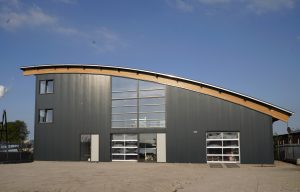 The chocolate factory works exclusively with 'single origin beans', which are bought directly from farmers. The sailing ship that brings the cocoa beans from the Dominican Republic can moor right in front of the door of the new chocolate factory. And there is room for the cyclists
The chocolate factory works exclusively with 'single origin beans', which are bought directly from farmers. The sailing ship that brings the cocoa beans from the Dominican Republic can moor right in front of the door of the new chocolate factory. And there is room for the cyclists
of the bi-annual Schokofahrt to distribute the chocolate on bicycles to Germany.
About Chocolatemakers
Chocolatemakers makes the chocolate from bean to bar in their own factory in Amsterdam. The chocolate is made with 'single origin' beans purchased directly from cocoa farmers. Three origins, each with its own story:
- In Peru, Chocolatemakers works on projects to improve soil quality and last year they built a modern chocolate factory together with the cocoa farmers. For the first time in history, this allows the farmers to become chocolate makers and thus generate more income.
- From the Dominican Republic, the bars are transported by sailing ship entirely on wind power to the Netherlands, where they are processed into strong chocolate.
- In Congo, cocoa provides an income for local people so that they do not threaten the habitat of the mountain gorillas in Virunga National Park.
Large quantities of chocolate bars leave the factory and are enjoyed daily by many fans in the Netherlands, Belgium and Germany. The products are available at Ekoplaza, Marqt, Holland & Barrett and other (organic) shops throughout the Netherlands or via the webshop www.chocolatemakers.nl.
On 31 May, the farmers' cooperative Norandino, in cooperation with Chocolatemakers, opened an organic cocoa processing plant in Piura, in the north of Peru. opened an organic cocoa processing plant in Piura, northern Peru.
Since 2011, Chocolatemakers has worked directly with the Norandino farmers' cooperative, where a cocoa farmer earns a fair price for cocoa beans. Together, they built a chocolate factory where the cocoa farmer is truly part of the cocoa industry. The goal? By 2024, Norandino will be a leader in cocoa production and in the marketing of high-quality, refined cocoa. The 'Norandino chocolate factory' brings cocoa to the market which is not only tasty and organic, but also makes a statement.
Chocolatemakers is working hard for change in the cocoa industry. Their mission is to build a fully sustainable cocoa chain by working directly with farmers (cooperatives), businesses (retail) and consumers. In this way, they show and experience that an alternative cocoa chain contributes to better chocolate and a better world. "The great advantage is that the farmers have the production of cocoa mass in their own hands.
- From left to right: Santiago Paz Lopez (Norandino), Rodney Nikkels (Chocolatemakers) & Don Crescencio Chamba (cocoa farmer)
It is truly their factory and that is unique," says Rodney Nikkels, who founded Chocolatemakers with Enver Loke in 2011. "This development in the cooperation with Norandino is a next step in fair distribution within the cocoa industry and more independence for the cocoa farmer, the next step is that they will also produce the chocolate themselves". Cocoa farmers are extremely dependent on their cocoa beans and the price on the world market. In recent years the minimum price for cocoa has hardly increased. José Fernando Reyes Cordova, Norandino's chief financial officer: "With a cocoa mass processing plant, we can improve the price and position ourselves in the global cocoa market. The plant can produce between 3,000 and 5,000 tonnes of cocoa mass per year for the export market in the west - and within five years also serve the regional market in South America. The ambitions of Norandino's Peruvian managers are great. Santiago Paz Lopez, general manager: "By 2024 we want the Norandino farmers' cooperative to be a leader in cocoa production and in marketing high-quality, refined cocoa liquor.
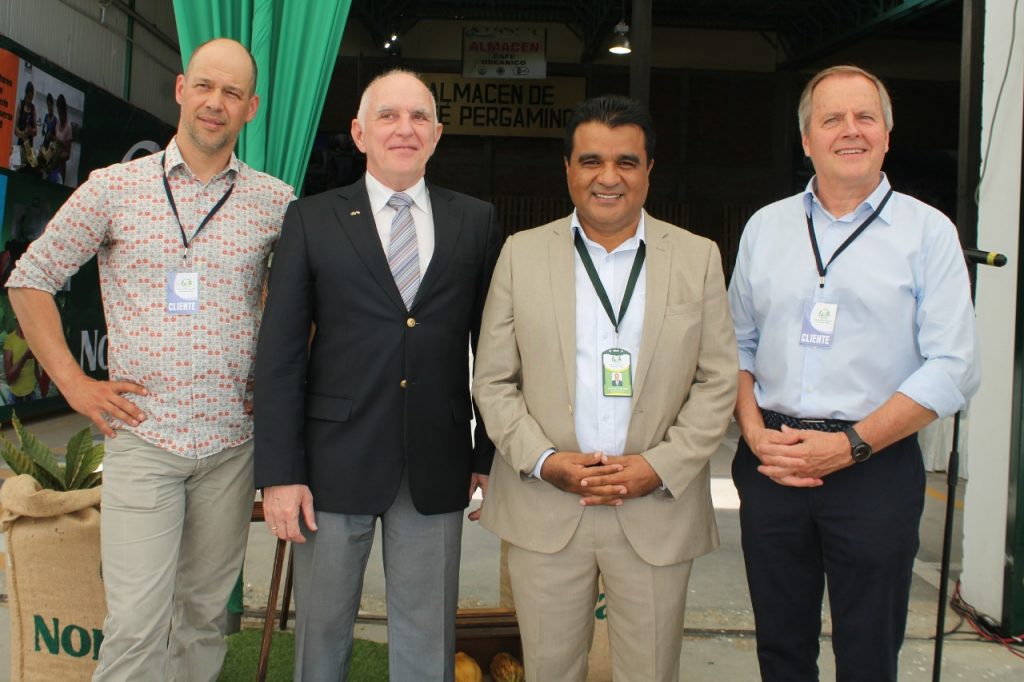
From left to right: Rodney Nikkels (Chocolatemakers), Klaas Kniest (Wiener Duyvis), Santiago Paz Lopez (Norandino) & Huub Keulen (Representative Rabobank Foundation) at the opening of the new factory
The 'Norandino chocolate factory' in Peru, is largely owned by the Norandino farmers' cooperative and for a limited part by the Dutch organic chocolate brand Chocolatemakers. The project is made possible by Rabobank Foundation, Stichting Doen and the Private Sector Investment Program (PSI). Wiener Duyvis is responsible for the machinery in the Peruvian chocolate factory.
ÂÂ
Chocolatemakers and Norandino: a true and genuine partnership in the cocoa industry
Since their establishment in 2011, Chocolatemakers and Noradino have been working towards their shared mission of providing a serious future for Peru's cocoa rich region, a region where high quality cocoa species are found. On the one hand by improving production in the Amazon rainforest, on the other hand by providing farmers with a better income through their own factory.
Chocolatemakers puts development first and looks for adventure: "We help them with knowledge, quality and machines so that they can learn and do the process themselves," says Rodney. José Fernando adds: "We share exactly the same principles and vision of small-scale farming and developing a sustainable relationship with the indigenous people, also known as the Awajun Indians."
- Norandino cocoa farmer and family in the Amazon rainforest in Peru
The fact that Chocolatemakers sources its cocoa from Peru directly from the farmers (cooperative) and then markets it as 'the Awajun bar' says enough about how genuine the cooperation is. The cocoa in this bar is grown by the Awajún ('Awagoen') Indians in the Amazon rainforest in Peru. A strong chocolate in the dark milk (52% cocoa) and dark (80% cocoa) varieties.
Chocolatemakers; adventurous chocolate with impact
Chocolatemakers' mission is to build a fully sustainable alternative cocoa chain through direct cooperation with farmers (cooperatives), businesses (retail) and consumers in order to show and experience that the cocoa chain contributes to better chocolate and a better world.
Chocolatemakers makes the chocolate from bean to bar in their own factory in Amsterdam. The chocolate is made with 'single origin' beans by working with farmers in three locations around the world. Each of the three product lines also has its own story and mission to make even more of an impact.
- In Peru, Chocolatemakers is working together on projects to improve soil quality and is building a local factory to help farmers earn a better income.
- From the Dominican Republic, the bars are transported by sailing ship to the Netherlands, where they are processed into strong chocolate.
- In Congo Chocolatemakers contributes to the preservation of Virunga National Park, the habitat of the mountain gorillas. The cocoa provides the residents with an income so that they do not threaten the gorillas' habitat through logging and agriculture.
The chocolate is made according to our own recipe to which as little sugar as possible is added. The bars, available in 7 varieties, therefore have a unique powerful taste. The products are available at Ekoplaza, Marqt, Holland & Barrett and other (eko) shops throughout the Netherlands.
In the autumn, Chocolatemakers will open the world's most sustainable chocolate factory in Amsterdam West, at Radarweg 32a. Norandino is also involved in the factory in Amsterdam.
More information via www.chocolatemakers.nl
Download here image material
In July, the sailing ship Tres Hombres will arrive with our new harvest of cocoa from the Dominican Republic. Be part of the adventure and help us unload!

For the first time, the Tres Hombres will dock at our new factory, which is still under construction. We will open the factory in October! But you can already be one of the first to see what it will look like.
The expected arrival date of the Tres Hombres is Saturday 13 July!
Location: Radarweg 32a
Through Facebook, we will keep you informed:
Check out the latest updates here!
Cocoa from the Dominican Republic to Amsterdam by sailing ship:
- 143 bags of Trinitario cocoa weighing 70 kilos are being transported, i.e. 10,000 kilos (10 tonnes).
- The Tres Hombres trip inspired us to make the Choco Sails Have you tasted them yet?
- This long journey across the North Atlantic will be completed in 13,822 nautical miles (25598 KM), follow them here.
- The expected date of arrival is very much dependant on weather and wind
- Since 2012, the Tres Hombres' organisation, Fairtransport, has been campaigning for emission-free transport, and this is the 8th time they have made the crossing.
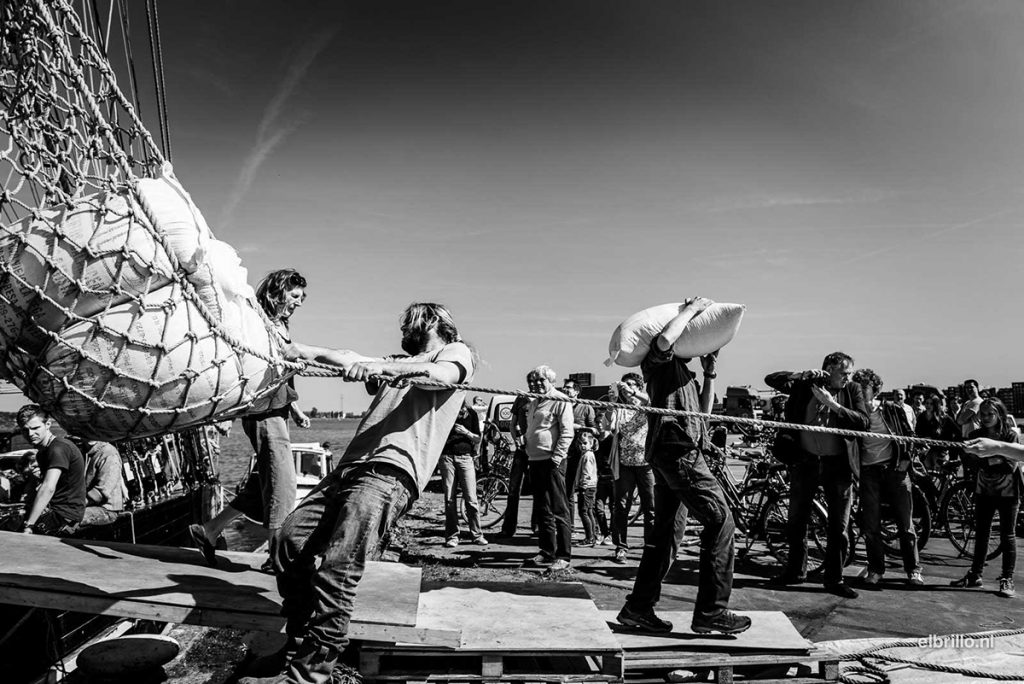
Unloading the cocoa
The bags of cocoa are unloaded with a net. In the hold, a few bags of beans are always placed on the net. Then the people on the shore can start hoisting. Good for your muscles!
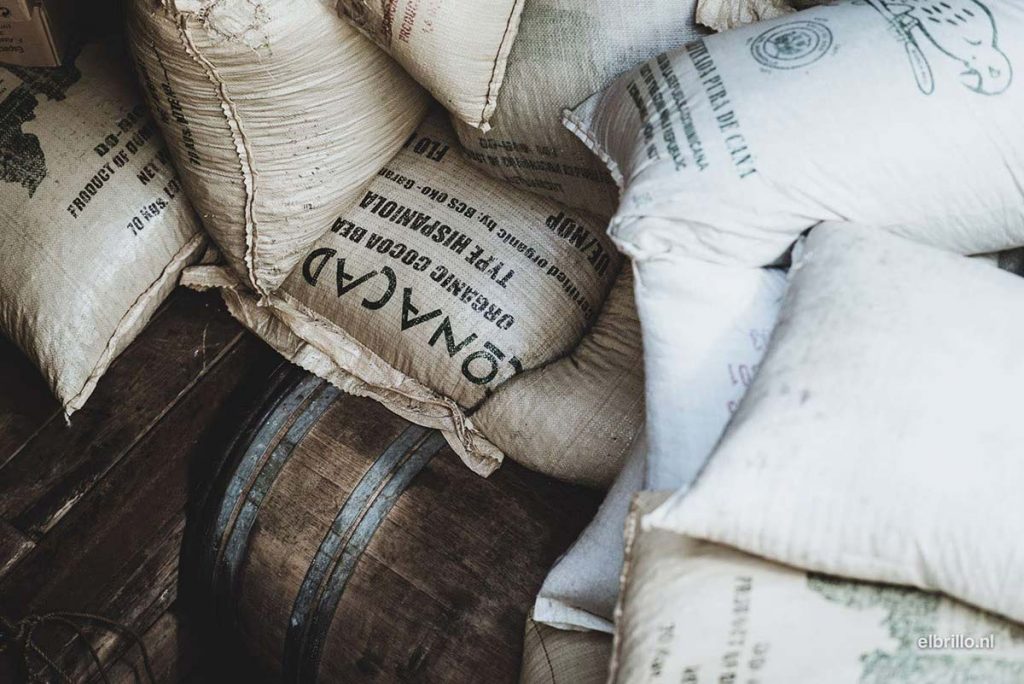
SHOCK JOURNEY FROM GERMANY TO THE NETHERLANDS FOR 18,000 CHOCOLATE BARS
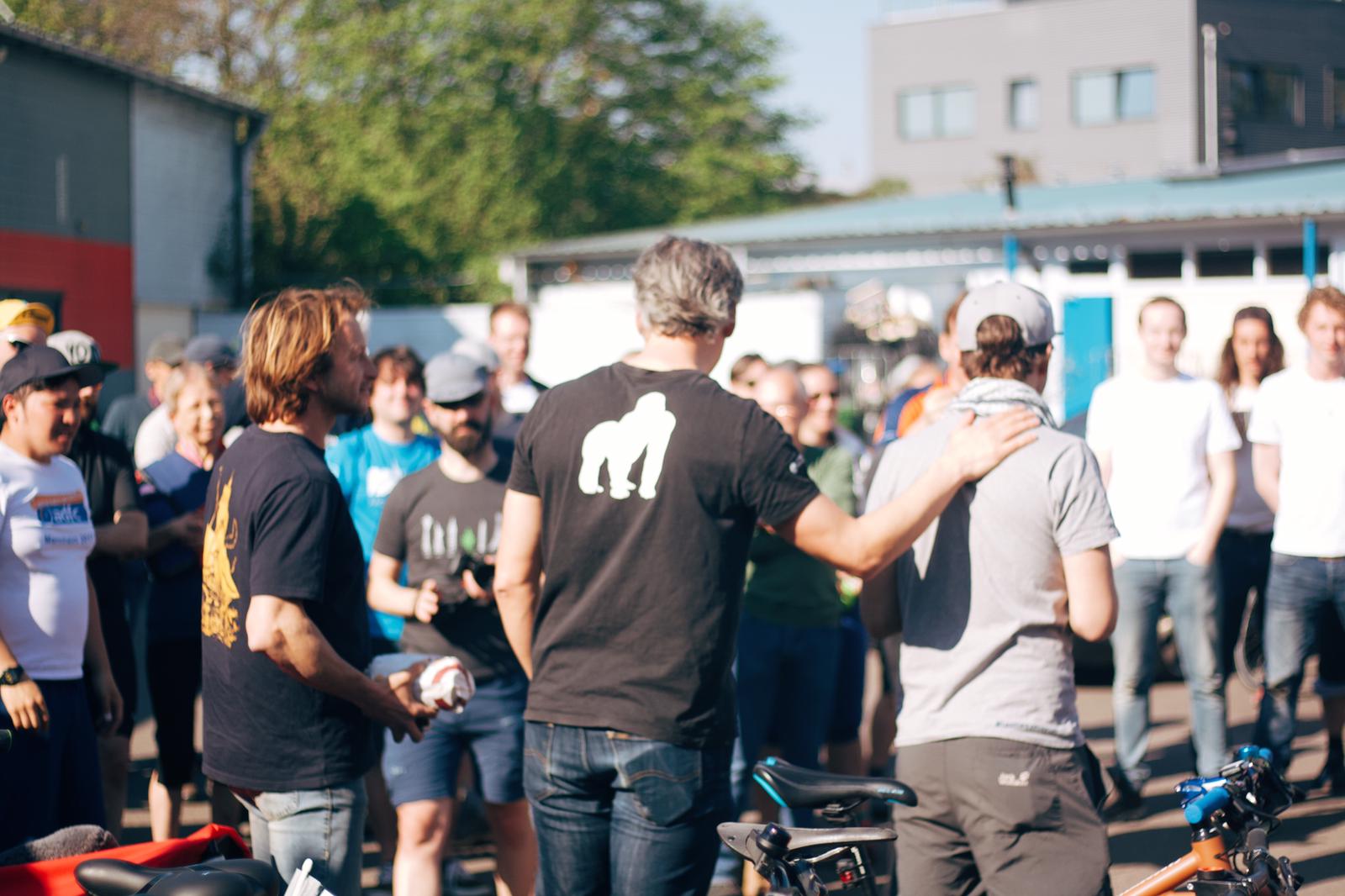
Fltr: Andreas Lackner (initiator of Tres Hombres), Enver Loke (founder of Chocolatemakers), and Nikolai Wystrychowski, (initiator of Schokofahrt in Munster)
On 20 April, 140 Dutch and German cyclists set off in the direction of our chocolate factory to collect 18,000 chocolate bars - and that in 25 degrees during this fifth edition. More than two hundred people participated in stages. How many KM were covered for emission free transport? We explain why cyclists bring high quality chocolate into their homes, or rather across the border to German shops. The high temperature in April did not stop the cyclists from cycling 30 km to 1300 km - on the contrary, it gave them even more reason to make a statement: transport chocolate without CO2 emissions!
- Saskia Groenewoud (District President North), Enver Loke and Nikolai Wystrychowski
- Listening to speeches by Saskia Groenewoud, Andreas Lackner, Nikolai Wystrychowski and Enver Loke
Twice a year, more than a hundred cyclists cycle to Chocolatemakers' chocolate factory to transport chocolate as sustainably as possible. Better known as the: 'Schokofahrt', an initiative of German bicycle enthusiasts who use this way to make Chocolatemakers' chocolate available in Germany. Nikolai Wystrychowski, initiator (from Munster) of the Schokofahrt:
We would like to contribute to Chocolatemakers' mission to make the last part of their chocolate chain sustainable. It feels good to contribute in a positive way with our passion for cycling.
We spoke to some of the participants about their adventure and motivation to participate.
Read along:
- Jörg & Laura (Münster, 250 KM)
- Samuel (Hamburg, 450 KM)
- Man with custom-made high bike (Wuppertal, 300KM)
Jörg (Münster, 250 KM):
"My son is one of the initiators. For me, it is very important to show what is possible with cargo bikes for the environment. My goal is to show that it is 1. possible and 2. necessary to transport less with cars and more with real movement, the bicycle."
Laura (Münster, 250 KM):
"It is so good for people to discover how much distance you can cover by bike. More and more people take part every edition".
Samuel: (Hamburg, 450 KM)
"I am participating to make a small difference in the world. I'm a real cyclist, so it feels like a perfect match to transport something CO2 free and have a good time at the same time. I came from Hamburg and cycled via Munster to Amsterdam."
- Cyclists from an association for young people with disabilities (Göllheim, 600KM)
- Cargo bicycle packed
- Laura & Kathy (Bahn, 300KM)
Youth association for young people with disabilities (Göllheim, 600KM):
"This project is very good for the youth to show them what is important, to teach them about sustainability & and to show them what is possible."
Laura & Kathy (Bahn, 300KM):
"We got to know each other through the Schokofahrt. Why are we participating? Because it's very cool to participate, the idea is good, to convey an important message together and show others how to deal with sustainability & alternative transport and trade."
The men from the Tres Hombres discussed the route the cocoa takes with Enver (pictured below). The cocoa beans (from the Dominican Republic) are currently being transported to Amsterdam on the sailing ship 'Tres Hombres' and will arrive in Amsterdam around the end of June. Follow us on Facebook to be informed of the exact arrival date.
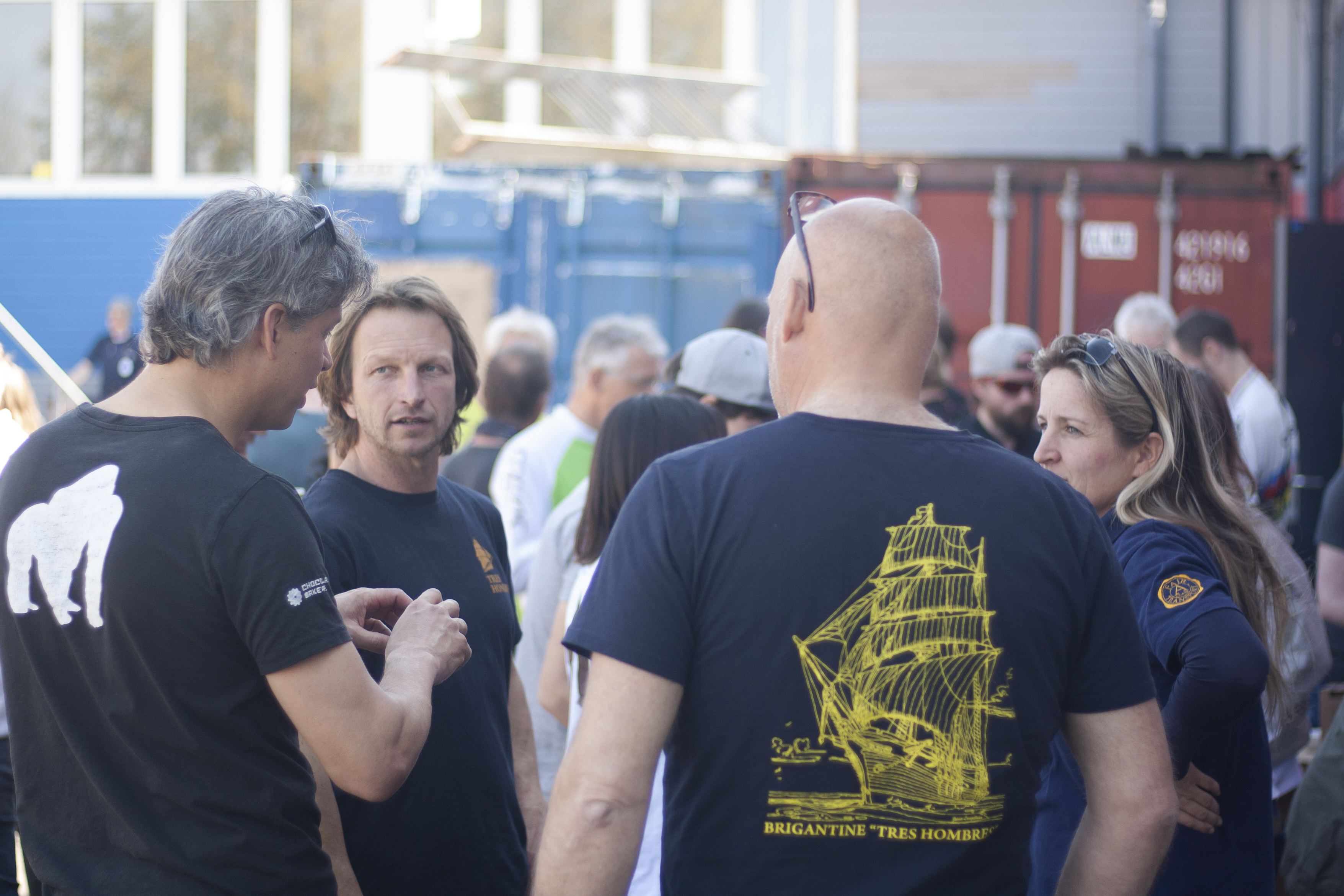
Chocolatemakers; adventurous chocolate with impact
Chocolatemakers' mission is to build a fully sustainable alternative cocoa chain through direct cooperation with farmers (cooperatives), businesses (retail) and consumers in order to show and experience that the cocoa chain contributes to better chocolate and a better world.
Chocolatemakers Schokofahrt 2019: The next edition will take place in October 2019. This year, for the first time, a number of Dutch consumers and companies also participated. Do you also want to do your bit and transport the chocolate emission-free to your home or shop? Send an email to info@chocolatemakers.nl
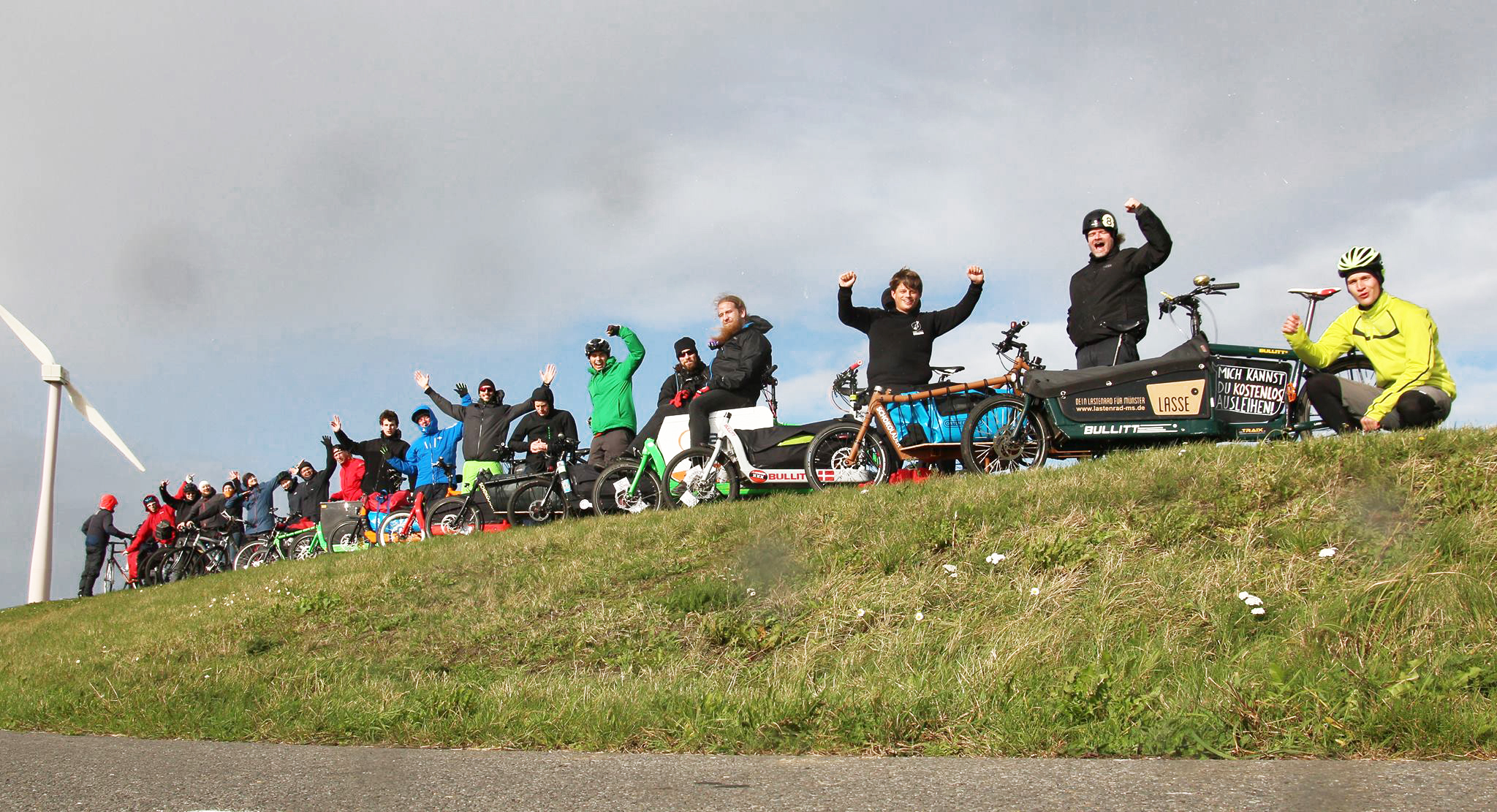
On 20 April, 130 cyclists will ride from our factory in Amsterdam to Germany to deliver 18,000 chocolate bars to German retailers.
This 'Chocolatemakers Schokofahrt' is an initiative by German bicycle enthusiasts who are making our chocolate available in Germany. Nikolai Wystrychowski, initiator of the Schokofahrt from Munster: "We would like to contribute to Chocolatemakers' mission to make the last part of their cocoa chain sustainable. It feels good to contribute in a positive way with our passion for cycling'.
Under the name Chocolatemakers Schokofahrt, more than 100 cyclists cycle twice a year from 34 German cities to Amsterdam. Here they load 1800 kg of chocolate into their cargo bikes and ride back to Germany to deliver our chocolate to 80 shops. The route varies from 230 km (Munster) to 1300 km (Vienna-Austria).
Together with the Schokofahrt, we form our own unique chocolate chain that is sustainable from start to finish.We have realised a fully sustainable chocolate chain, from bean to bar. The beans (from the Dominican Republic) are sailed to Amsterdam on the sailing ship 'Tres Hombres' and we then turn them into strong chocolate in our own factory in Amsterdam, powered by green electricity, of course.
Are you curious about the route? Or are you a cycling (and chocolate) fanatic yourself? Take a look at here the route. Support the 'Chocolatemakers Schokofahrt' and come and collect the chocolate yourself by bike from our chocolate factory on April 20th.
We now call on (bicycle) fans in the Netherlands to start a similar movement. Order in the webshop with 25% discount and no transport costs and come and collect the chocolate yourself by bike at our chocolate factory on April 20th.
Order with 25% discount until 20 April!
- Use the code Bicycle25 in the webshop
- Come and collect the chocolate by bike on April 20 between 10.00 - 13.00
Chocolatemakers chocolate factory, Sixth Vogelstraat 54 📍 - Support the Chocolatemakers Schokofahrt!
Chocolatemakers: adventurous chocolate with impact
Chocolatemakers' mission is to build a fully sustainable alternative cocoa chain through direct cooperation with farmers (cooperatives), businesses (retail) and consumers in order to show and experience that the cocoa chain contributes to better chocolate and a better world.
Have you ever made chocolate milk from real chocolate?
Enver has the perfect recipe, which is different every time, so you never know what you will get, but it is very tasty every time.
Ingredients
Chocolate (Virunga 70%)
1/3 part water
2/3 part milk
sugar
cardamom
cinnamon
nutmeg
You melt the chocolate in hot water. Add milk and to taste, sugar, cardamom, cinnamon and nutmeg.
If you like it a bit fresher, you can also add lemongrass. And then ... just pure enjoyment.
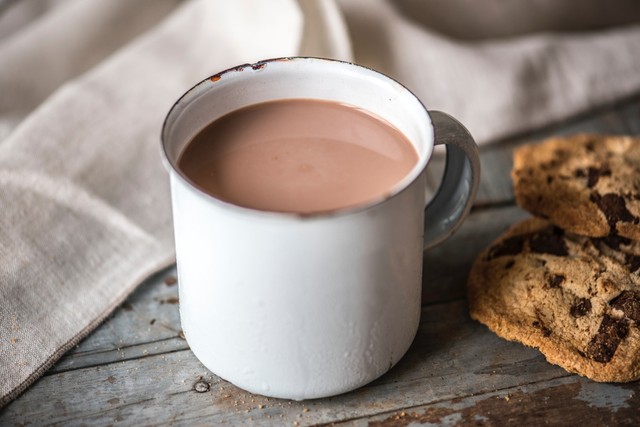
Schokofahrt#4
Around 100 German and a few Austrian cyclists will come to our factory in Amsterdam-North with their cargo bikes from different parts of Germany to collect chocolate and cycle it back to Germany on 6 October. The idea of the Schokofahrt is to transport the organic chocolate, transported by the sailing ship Tres Hombres, to Germany completely free of emissions. They want to show that transport by bike is possible and at the same time connects people.
This is the fourth time the Schokofahrt has come to Chocolatemakers comes. As more and more people recognize the need for sustainable transportation, more and more cyclists and stores are joining this initiative.
Katelijne Boerma, Amsterdam's cycling mayor, welcomes the cyclists. I think this is a great initiative. It's great that inter-city cycling connections are being created by pioneering companies like Chocolatemakers. If you look at the crowds in our city, and the fact that cargo bikes offer a solution to make the city cleaner, more social, more accessible and safer for everyone, it's great to see that German cities are following suit and even making the connection.
This time, in addition to 12,000 Tres Hombres bars, the Schokofahrt participantswill also take the new Tres Hombres minis and the Choco Sails chocolate. The cocoa beans of this chocolate have been sailed from the Dominican Republic to the Netherlands by the sailing ship Tres Hombres and brought to the factory by carrier cycle. Chocolatemakers made delicious chocolate from these beans and the Schokofahrt transported them to Germany and Austria, so that this delicious chocolate is also available there completely free of emissions.
Read more on the Schokofahrt website, or on the Schokofahrt Facebook page.
Download the press release here
This is where the cyclists come from, and where the chocolate goes to...
In the Petit household, there is of course a lot of chocolate snacking, which is why the bars for sale are now safely stored in our warehouse and not at home.
Our favourite chocolate is "Rose de Sable", a recipe that we brought back from France and that is very easy to make with children.
You need for 10 roses:
150 grams of chocolate (we recommend the Chocolatemakers but this can of course be any brand of chocolate)
100 grams of butter
100 grams of Corn Flakes
Break the chocolate into pieces and put it in a pan with the butter. Let it melt au bain Marie and stir it every now and then.
Put the cornflakes in a bowl or dish and pour the melted chocolate over them. Stir well.
Place baking paper or aluminium foil on a flat dish and now use a spoon to make small mounds of the Corn Flakes mixture on the plate.
Now it can go into the fridge for a few hours (or overnight).
Before serving you can sprinkle some icing sugar on them if you like, but we always eat them without as the chocolate and cornflakes already contain sugar. Success assured!
source: https://www.fairtradeupgrade.shop/wist-jij-dat/internationale-chocolade-dag/
Have you tasted them yet?
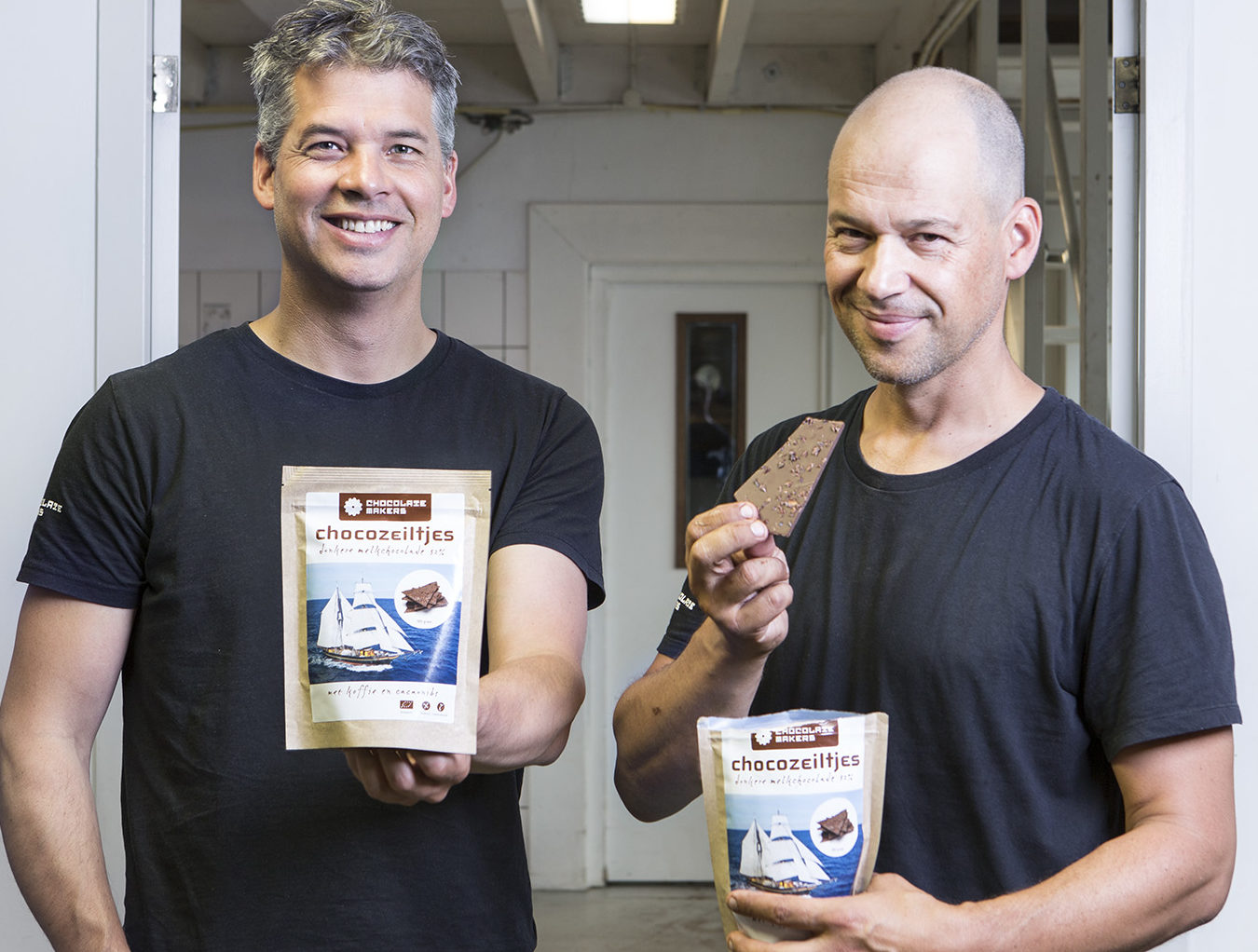
On 9 June at the arrival of the Tres Hombres, we introduced our new Choco Sails.
Our Choco Sailsare thin slices of coffee chocolate sprinkled with cocoa nibs, and they are simply delicious!
The organic coffee and cocoa beans come to the Netherlands by sailing ship and are prepared with love and time in our chocolate factory, and you can taste that.
We think they are very tasty, but what do our test subjects think? We asked them at the introduction of our Choco Sails and these are their reactions:
Not yet available everywhere, because NEW NEW!
It is generally known that we do not use aluminium foil, because aluminium foil is very polluting. But did you know that our packaging is 100% compostable? It can go straight onto the compost heap. No waste, that's what we like. And in this case, so does your garden.

Zero Waste Policy
 At Chocolatemakers, we pursue a Zero Waste policy. Our operations are based on minimising emissions and waste. We recycle and reuse materials throughout the supply chain and strive for local solutions. When designing new products and packaging, we also consider the possible reuse of raw materials after their life cycle. With our wrapper your (vegetable) garden can also enjoy the fact that you are eating chocolate. Now that's a win-win!
At Chocolatemakers, we pursue a Zero Waste policy. Our operations are based on minimising emissions and waste. We recycle and reuse materials throughout the supply chain and strive for local solutions. When designing new products and packaging, we also consider the possible reuse of raw materials after their life cycle. With our wrapper your (vegetable) garden can also enjoy the fact that you are eating chocolate. Now that's a win-win!
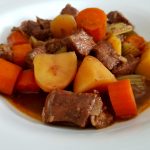 Slow-cooker stew is so delicious that, as far as I am concerned, it is the dish you can make to convince someone of the convenience of the slow-cooker. In other words: if you have to save yourself by making one dish with a slow-cooker, make stew meat: it is so tender that it falls apart, but does not become dry. You make the flavour yourself by using spices and other ingredients, so for this stew I used dark beer and chocolate. The dark beer I got from a hobby brewer from Amsterdam, the chocolate I got from Chocolatemakers, coincidentally also from Amsterdam. You can find the recipe below.
Slow-cooker stew is so delicious that, as far as I am concerned, it is the dish you can make to convince someone of the convenience of the slow-cooker. In other words: if you have to save yourself by making one dish with a slow-cooker, make stew meat: it is so tender that it falls apart, but does not become dry. You make the flavour yourself by using spices and other ingredients, so for this stew I used dark beer and chocolate. The dark beer I got from a hobby brewer from Amsterdam, the chocolate I got from Chocolatemakers, coincidentally also from Amsterdam. You can find the recipe below.
Ingredients
- Unsalted butter
- 3 sliced onions (rings for more 'bite' and cubes if you only care about the taste)
- 500 grams of sukade ragout cut into 2 x 2 cm pieces
- Salt
- Pepper
- Flour (for pollination of the meat)
- 3 teaspoons Zwolsche stoof kruiden of Jonnie Boer (Euroma)
- 6 potatoes peeled and quartered
- 2 stalks of celery cut into large pieces
- 6 carrots, peeled and coarsely chopped
- 1 bottle of dark beer
- 50 grams of bitter chocolate such as the 92% cacao Gorilla Bar (I received this bar of dark chocolate from Chocolatemakers)
- Optional vegetable side dish
Preparation:
- Fry the onions glazed in the butter.
- In the meantime, season the sukade cubes with salt and pepper.
- Then sprinkle flour over it.
- Then fry the sukkot with the onions until the meat is browned all over.
- Add the Zwolsche Stoof herbs and mix well.
- Turn off your pan. I use my slow-cooker for frying, if you don't have a frying function then take your meat onion mixture out of your frying pan and spoon it into your slow-cooker.
- Put the potatoes on your meat with onion, then put the celery and carrots on top.
- Then gently pour the dark beer into the pan.
- What I always do now is to take my olive wood ladle, gently put it into the pan from top to bottom and take it out again. I don't stir, I just make sure that the liquid and the herbs are still somewhat distributed over all the vegetables and potatoes. This does not have to be done very precisely.
- Now put the lid on the pan and set your slow-cooker for six and a half hours (6 hours and 30 minutes) on low/low.
- After at least four hours, add the chocolate and stir everything, but make sure that the meat stays at the bottom of the pan. That way, the meat always remains moist.
- I use the 92% cocoa Gorilla Bar because it is very nice dark chocolate that does not taste too bitter. The chocolate gives this dish just that little bit more and it is of course also nice to tell your guests that there is chocolate in the stew.
- Put the lid back on the pan and let the dish cook through.
We eat this dish without side dishes. You can, of course, optionally add a salad or other vegetables so that you get enough of them. I have noticed that we tend to cook more and more in one-pan meals in the slow-cooker. It is wonderful to have already cooked in the morning so that we have time to relax after a busy day just before dinner.
source: https://www.plezierindekeuken.nl/slowcooker-stoofvlees-met-bier-en-chocolade/
At Restaurant MOER (part of Conscious Hotels) they cook exclusively with pure, organic produce. Staying with the basics, that's important. And of course, we completely agree with that! The reason they love working with Chocolatemakers chocolate at MOER is because it uses cacao varieties that give a beautiful, rich flavor.
Here is one of their delicious desserts with our chocolate.
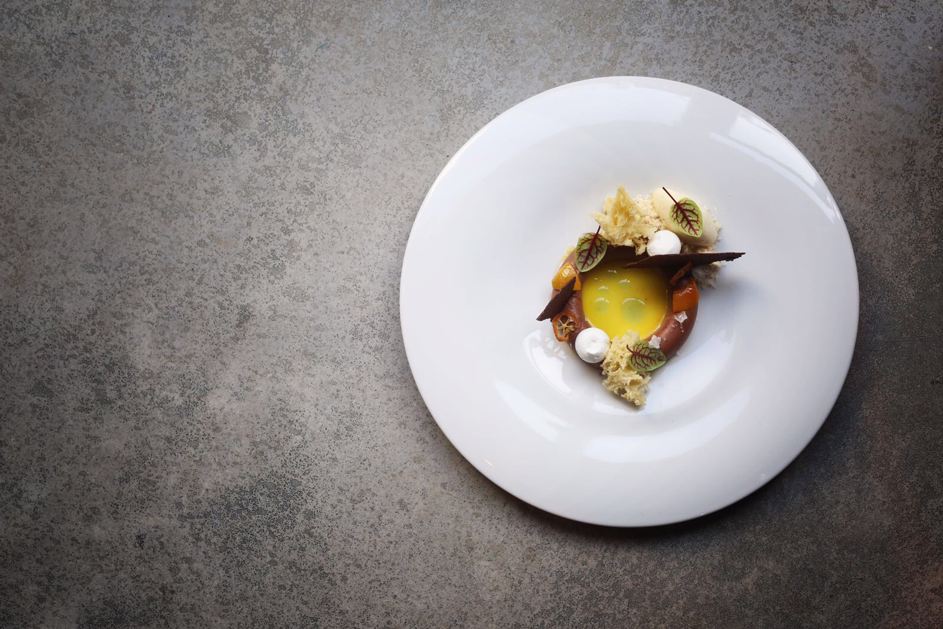
Chocolate mousse ( ring ) for 6 persons :
The ingredients :
80 gr egg yolk
100 gr milk
100 gr sugar
13 gr gelatine sheets
100 gr egg white
30 gr sugar
460 gr Chocolatemakers 75% Chulucanas
1 ltr whipped cream
Soak the gelatine sheets in cold water
Melt the chocolate
Beat the egg white with 30 gr sugar until it is a white and airy foam
Whip the cream until it is lumpy (custard thickness)
Beat the yolk, milk and sugar on a low heat until light and fluffy
Melt the gelatine in it
Mix this mass with the melted chocolate
Fold this mixture through 1/3 of the egg white foam, then fold in the rest.
Then fold in the whipped cream
Pour into the moulds you want to use and leave to set in the fridge for 3-4 hours
Spongecake:
The ingredients :
300 gr pasteurised egg white
160 gr almond powder
160 gr sugar
55 gr flour
120 gr egg yolk
Mix everything together in a food processor or with an electric whisk
Put the mixture through a sieve
Take a kidde ( whipped cream syringe ) and put the mass in it, 2 gas cartridges for a ltr bottle and 1 cartridge for a 0,5 ltr bottle
Take cardboard cups, pierce small holes in the bottom, spray 1/3 of the cup with the mixture
In the microwave for 55 seconds at 700 watts
Leave to cool upside down, once cool you can use a knife to cut along the side so that the sponge cake falls out of the cup
Italian merengue:
The ingredients :
400 gr sugar
150 gr water (or for taste another liquid) not too acid that breaks down
250 gr egg white
Beat the egg whites until fluffy
Bring the sugar and water to a boil until 121 degrees Celsius
Add the hot sugar water while continuing to beat
Keep whisking until it is at room temperature
Spray on a baking mat in the shapes you want
Depending on the size, dry in the oven at 70 degrees for 3-5 hours
Chocolate tuille :
The ingredients :
150 gr egg white
125 gr icing sugar
75 gr flour
25 gr cacoa powder
100 gr melted butter
Beat the egg whites with the icing sugar until white and fluffy
Sieve the flour and cocoa
Fold this through the egg white mass
Then fold in the melted butter
Leave to set in the fridge for one hour
Spread out thinly on a tray and bake at 175 degrees for 9 minutes
Kumquat
Cut kumquats in half and put them in a soaking jar with warm sugar water and a shot of rum
Use some kumquat juice for the ring as well and add a few drops of nice olive oil
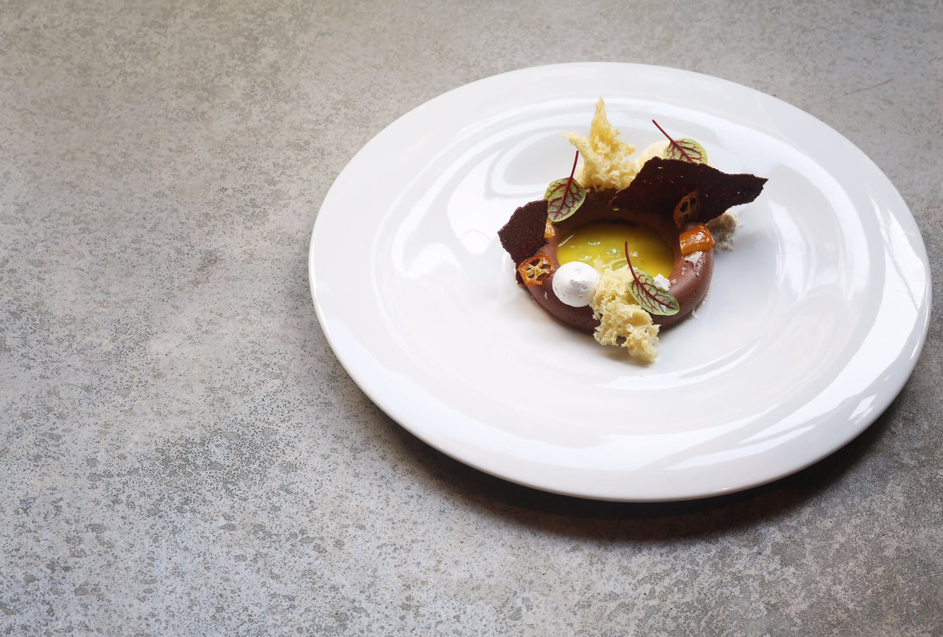
Perhaps you have already noticed, our bars have a new 'inner wrapper'! In other words, the inside of the 2 pieces of paper in which the bar is wrapped. A rather special wrapper we can say. It is made of cellulose (a plant material) and can therefore go straight on the compost heap! No waste, we like that. And in this case, so does your garden.
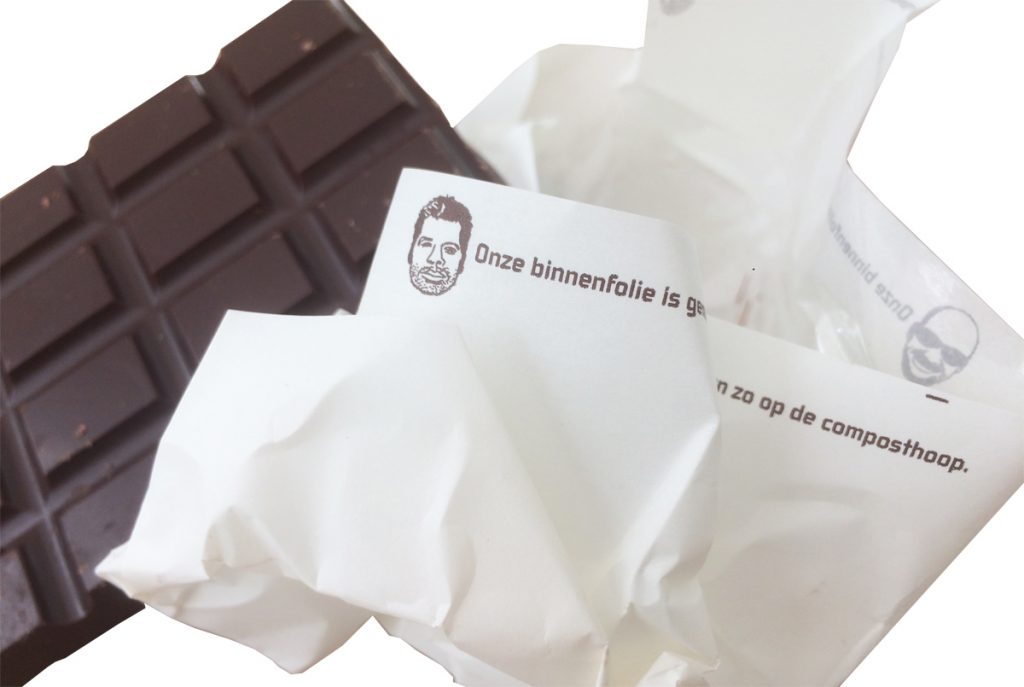
Why this new wrapper?
Our previous inner wrapper was made of grease paper without printing. Also suitable for 100% recycling, but ... this paper had a relatively low barrier function. This means that it blocks less air (oxygen) than, for example, aluminum foil (which in turn is very environmentally unfriendly). The
shelf life of the chocolate is about 8 months in the grease paper. Not such a problem for us, because who doesn't eat a chocolate bar within a few days?
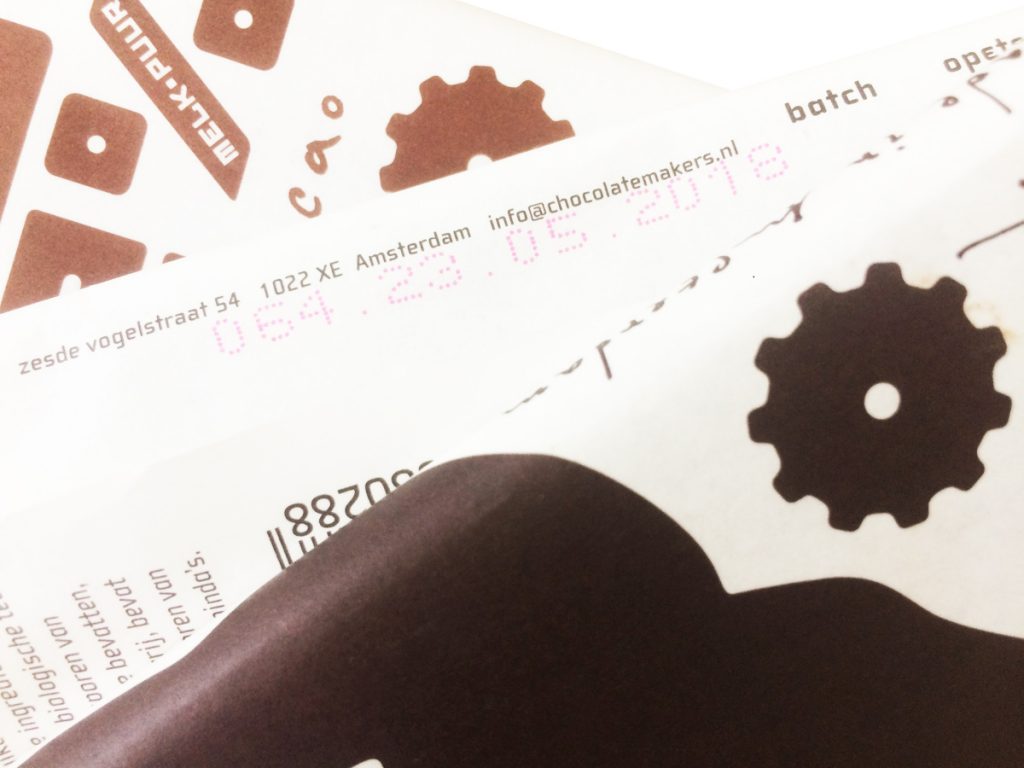
A wrapper made of plants
Our new inner wrapper, developed with Bio4PackOur new inner wrapper, developed in collaboration with the Dutch Ministry of Agriculture, has a layer of cellulose foil. This looks like plastic, but is made of plant material. The cellulose foil is laminated to the paper with compostable glue and can therefore be disposed of in the compost heap. It has a higher barrier function than the greaseproof paper, as a result of which the chocolate remains tasty for longer and has a longer shelf life.
An additional advantage is that the paper is somewhat stiffer and easier to fold. And that is what Aunt Agatha, our 1932 packing machine, likes.

Zero Waste Policy
 At Chocolatemakers, we pursue a Zero Waste policy. Our operations are based on minimising emissions and waste. We recycle and reuse materials throughout the supply chain and strive for local solutions. When designing new products and packaging, we also consider the possible reuse of raw materials after their life cycle. With this new inner wrapper your (vegetable) garden can also enjoy the fact that you are eating chocolate. Now that's a win-win!
At Chocolatemakers, we pursue a Zero Waste policy. Our operations are based on minimising emissions and waste. We recycle and reuse materials throughout the supply chain and strive for local solutions. When designing new products and packaging, we also consider the possible reuse of raw materials after their life cycle. With this new inner wrapper your (vegetable) garden can also enjoy the fact that you are eating chocolate. Now that's a win-win!
Hooray! Since last week we have been awarded the 'Amsterdam Made' label. Maybe you have already seen it in the Parole.
'The 'Amsterdam Made' hallmark gives local makers a global stage and stands for high quality and local entrepreneurship.'
- Amsterdam Made -
The Quality mark is an initiative of the municipality of Amsterdam and is awarded to high-quality products that are creative, innovative and sustainable. The products also have to show craftsmanship and the companies have to be located in Amsterdam... That's us!
Though we'd love to grow a little bigger of course. Bring on that world stage!
You may have already seen it passing by. A few weeks ago, we introduced our new Awajún 52% bar! A nice dark milk bar. One with a lot of cocoa so you can still taste real chocolate. The cappuccino of milk bars, if we may say so ourselves.
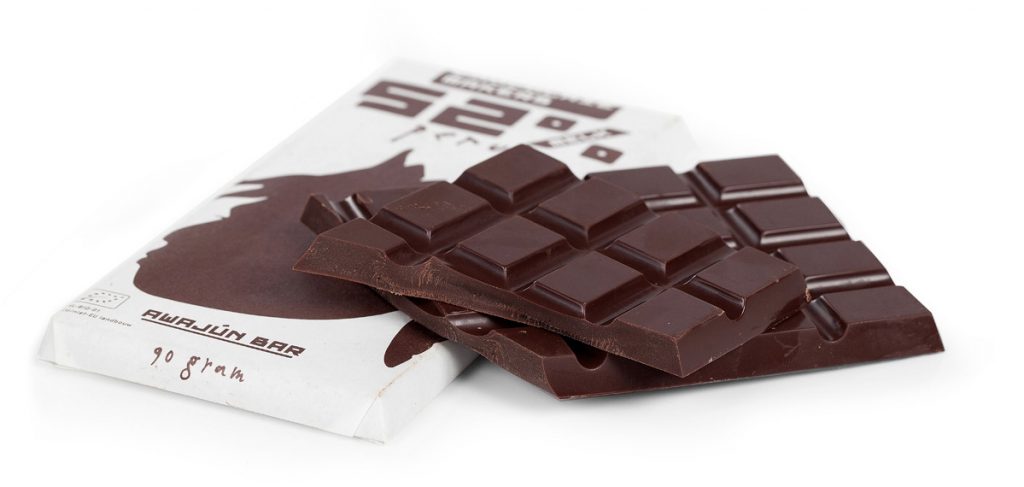
Press launch
For the first time in our existence, we invited a number of journalists & bloggers to our factory for this festive launch. For a tour and of course a (blind) tasting. Were they able to pick out our milk bar?
Below is an overview of the great articles, reviews shared by the attendees. With even a delicious recipe and a vlog already! And attention for us Peru Emergency Fund. Thank you all for coming, enthusiasm and sharing our story!
Betty's Kitchen Pastry series - recipe Culy - chocolate tasting
And here Enver and our cocoa beans in the spotlight...
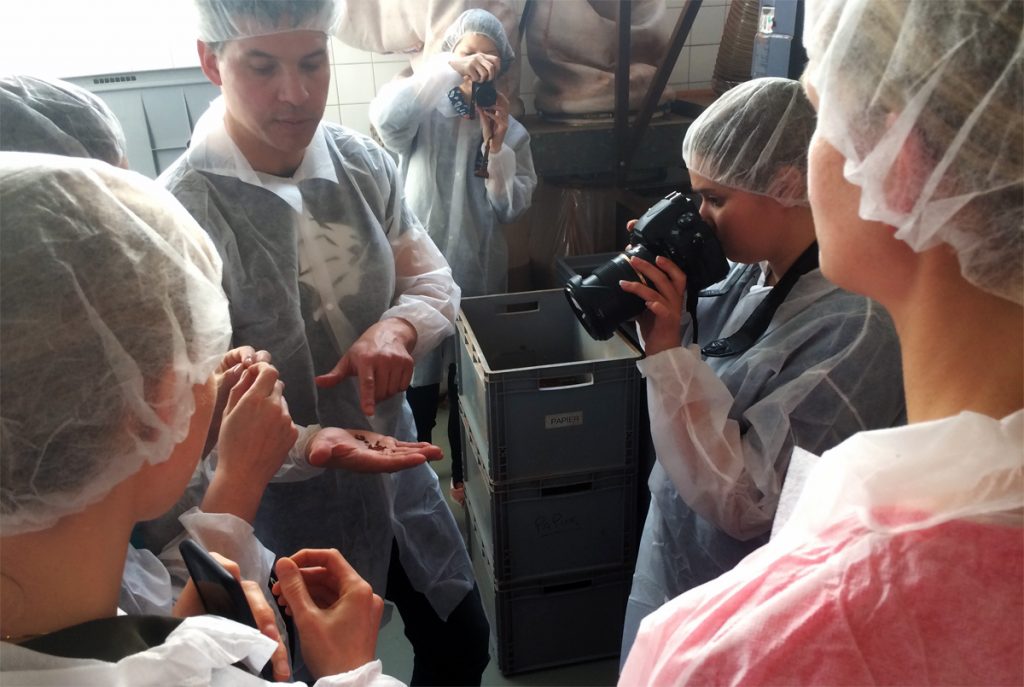

The discussion about a fair price for cocoa farmers continues. Something that pleases us.
Following the reaction of frank&fair to our criticism of Fairtrade's "fair price" in the Parole past week, the newspaper today posts the explanation of our statement. (Earlier this week also on our website read). Fairtrade Netherlands also made themselves heard and came out with an extensive article to support their position around a fair price.
In it, they too affirm that the minimum price absolutely must be raised to a Living Income for cocoa farmers. Fortunately, we are in full agreement on that. The step to get there is not an easy one for Fairtrade. But to get there as soon as possible, we are certainly happy to think along with them! When it comes to sharing our experiences on establishing and implementing a Living Income, Fairtrade can absolutely count on us. And, of course, we'll keep you posted.
Happy Easter! Hopefully with an honest Easter egg included.
Last week there was a beautiful piece about our bean-to-bar chocolate factory in the Parole. A piece with critical statements that quickly triggered discussion about the approach of Fairtrade loosened up discussion. And that is a good thing!
The response 'Criticism of Fairtrade label a misunderstanding' correctly notes that Fairtrade is more than just a premium. That it is a movement that works hard to improve the situation for local producers in multiple ways. Therefore, it is not our intention to suggest otherwise, because we all agree that things must and can be better in the cocoa chain.
But critical of the Fairtrade price & premiumWe are, however. Below we will gladly explain why.
Fairtrade minimum price
In 1994 it was Fairtrade model started for cocoa and chocolate. Fairtrade operates on the core principle of paying a "fair" (fair) price for commodities. At that time, in 1994, the minimum price was set at $1800 per 1000 kg (1 MT) of cocoa. In addition, a premium of $200 is paid which remains intact when the world market price exceeds the Fairtrade minimum price. In 2012, this minimum price was raised to $2000 per 1000 kg of cocoa and the premium is $200.
At the time of its establishment, the Fairtrade cocoa programme the price of $1800/MT was perhaps a fair price. In the meantime, 23 years have passed. A price increase from $1800 to a minimum of $2000 in this period is not in proportion to the reality in producing countries. Indeed, inflation in these countries is robust.
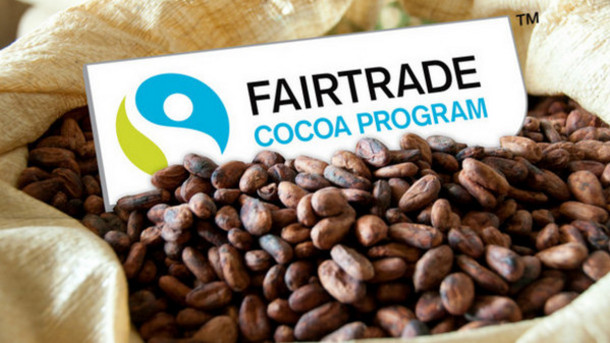
If we were to apply an average annual price adjustment of 2.5% per year (to the minimum price set in 1994), the minimum price would currently be $3200/MT. Therefore, our conclusion is that the cocoa price in real terms has actually only gone down and therefore the Fairtrade minimum price in real terms has also only gone down. With serious consequences (child labor, soil depletion, etc.).
What is a fair price?
Our question is to what extent the current minimum price for Fairtrade cocoa is a "fair" price. One would expect that a fair price would ensure that a cocoa farmer is able to provide for his primary livelihood (i.e. food, shelter, schooling and some plantation maintenance). Unfortunately, reality is still very far from this.
Such an approach that seeks to ensure this exists. It is called "Living Income" (the name says it all). It is described in the Cocoa Barometer 2015. We would argue that the Fairtrade minimum price should guarantee a Living Income for the farmers who participate in the system.
We try to apply this principle in our cooperation with the farmers and are very willing to share our observations and experience. In the end, we all strive for a chocolate sector that is happy for everyone, including the farmers!
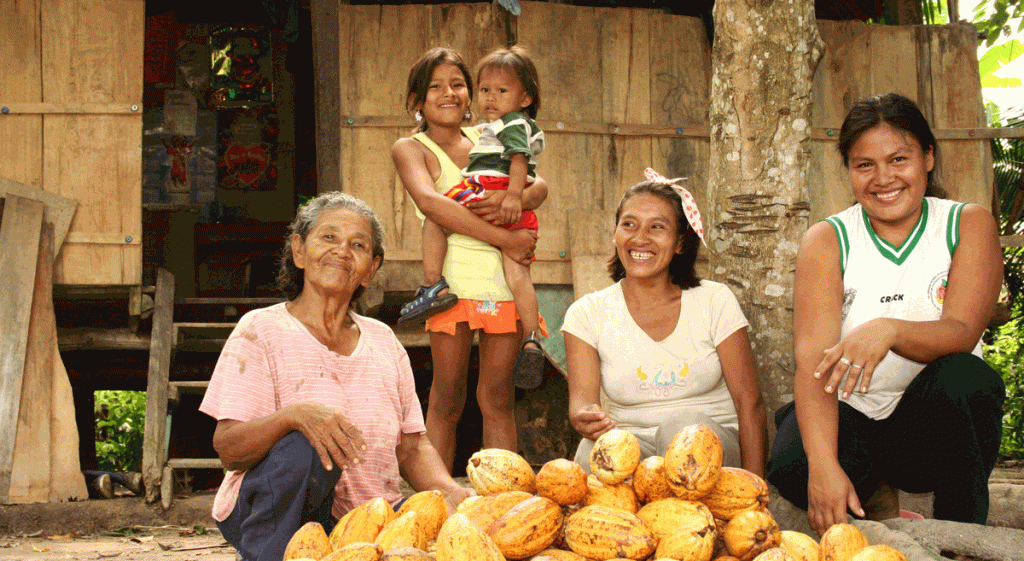
Storms in Peru destroy 40 hectares of cocoa plantations. That is why we set up the Chocolatemakers Emergency Fund.
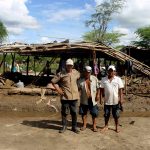 While in the Netherlands, we have our new Awajún 52% milk bar introducing cocoa from Peru, Peru was hit by the worst storm in 20 years. The farmers' cooperative NorAndino, with whom we have been working for years, is also badly affected. Incessant rain causes heavy floods, houses and plantations are destroyed and diseases break out. For the time being, the rain will not stop. That is why we are setting up an emergency fund right now!
While in the Netherlands, we have our new Awajún 52% milk bar introducing cocoa from Peru, Peru was hit by the worst storm in 20 years. The farmers' cooperative NorAndino, with whom we have been working for years, is also badly affected. Incessant rain causes heavy floods, houses and plantations are destroyed and diseases break out. For the time being, the rain will not stop. That is why we are setting up an emergency fund right now!
How can you contribute?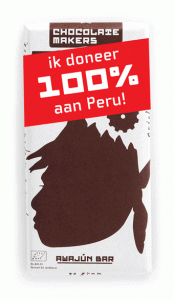
- Buy chocolate through our webshop. With the purchase of every bar through our webshop, we donate â'¬1,- to the emergency fund. Would you like to donate more? You can add an extra amount to your order.
- Buy our '100% to Peru bar' in our webshop. Then you will not receive a bar at home, but the full amount goes to the relief fund. You can buy as many bars from this as you want.
- Do you want to contribute in another way? Share this message among your friends, customers & supporters.
Every little bit helps. This way, we can support NorAndino and the affected families in rebuilding the area and their plantations.

The situation now in Peru
Last weekend, we had a lot of contact with director Santiago Paz Lopez, with whom we have been working for a long time for, among other things, our Awajún bars and the building of the factory in Peru. His messages are therefore very touching. 40 hectares of plantations have been destroyed!
If you consider that in one hectare there are about 650 cocoa trees, you can imagine the extent of the damage. In addition, 30 families lost their possessions and we also hear that there are outbreaks of the dengue virus, which is spread by mosquitoes.
Chocolatemakers Emergency Fund
Fortunately, the local authorities are providing the first emergency aid in terms of water, food and emergency shelter. Together with NorAndino, we are therefore looking ahead and focusing on reconstruction. With the Chocolatemakers Emergency Fund, we focus on restoring the cocoa plantations and the affected families by giving a contribution to repair the damage to houses and replace damaged/displaced items.
1 cocoa tree costs 1 euro, which is why Chocolatemakers donates 1 euro to the emergency fund for every bar sold in the webshop. We need 26,000 cocoa trees to replant everything.
> we want to support the affected families with a donation of â'¬250,- euro for reconstruction. For this we need â'¬7500,- euro.
Through our Facebook & Twitter page, we will regularly post about the situation in Peru.
Thank you for your support!
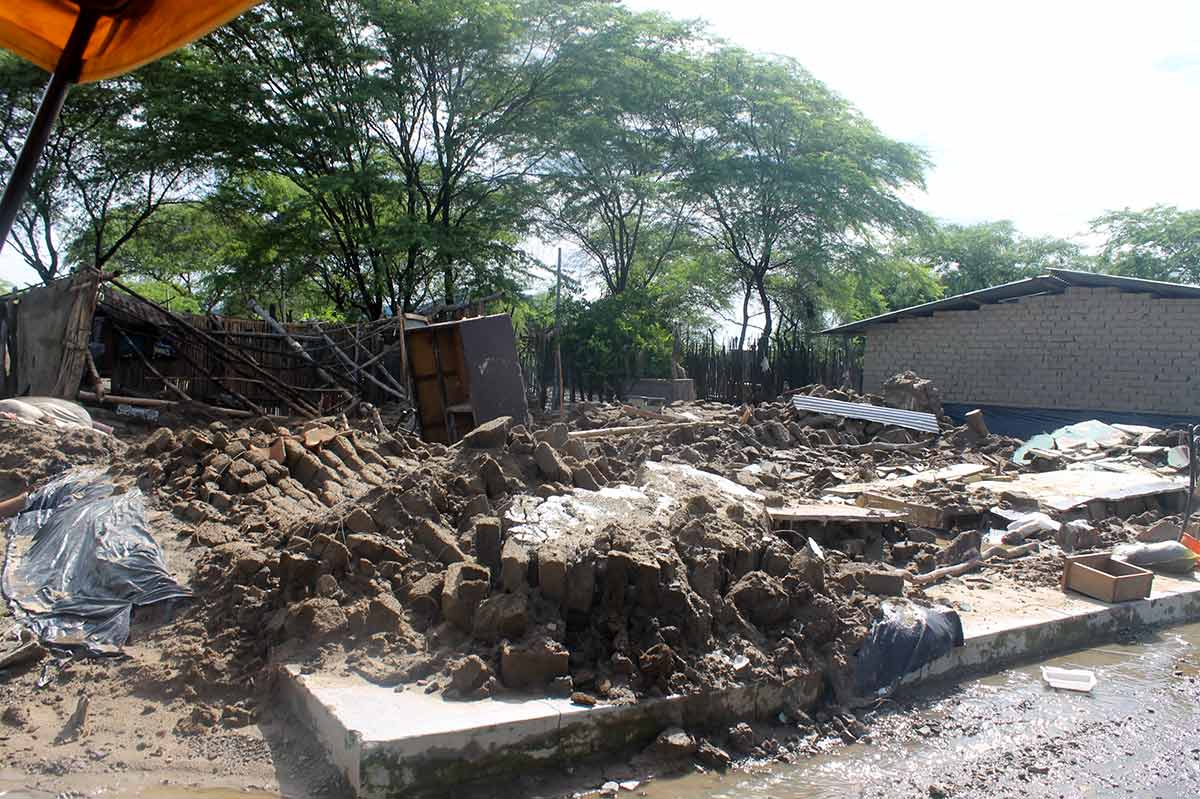
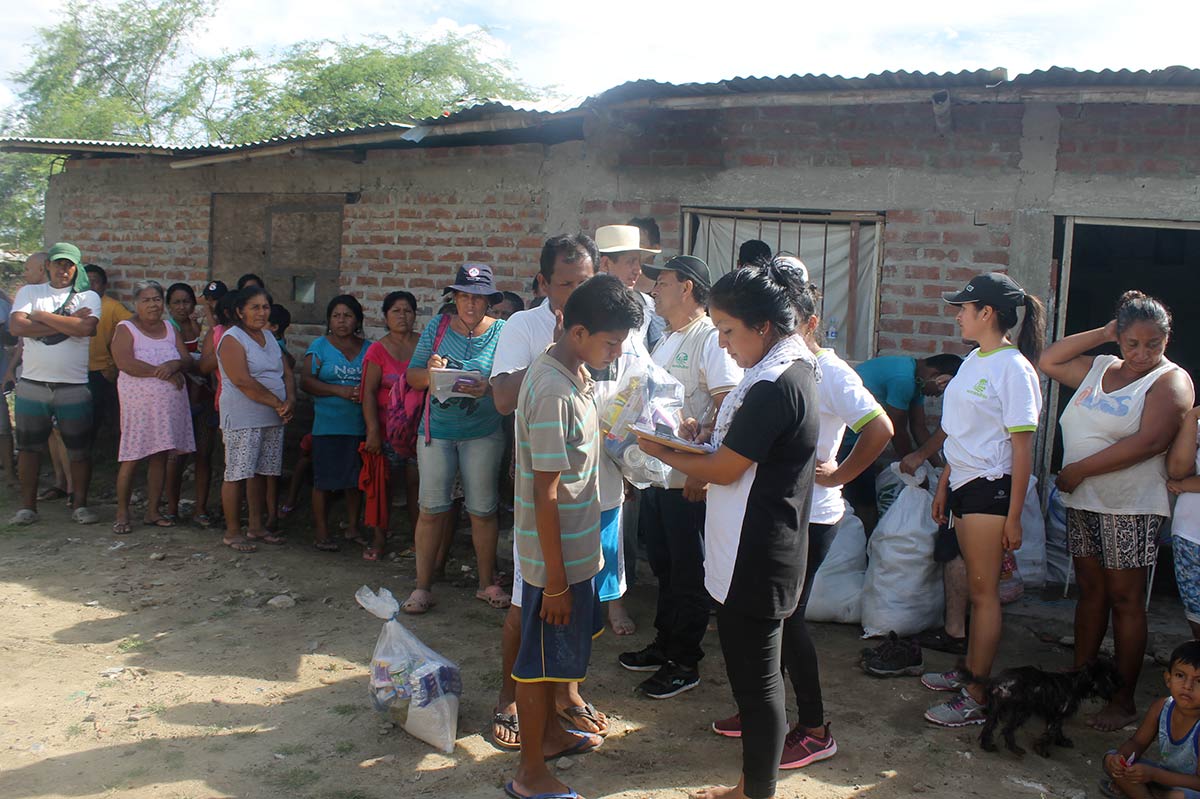
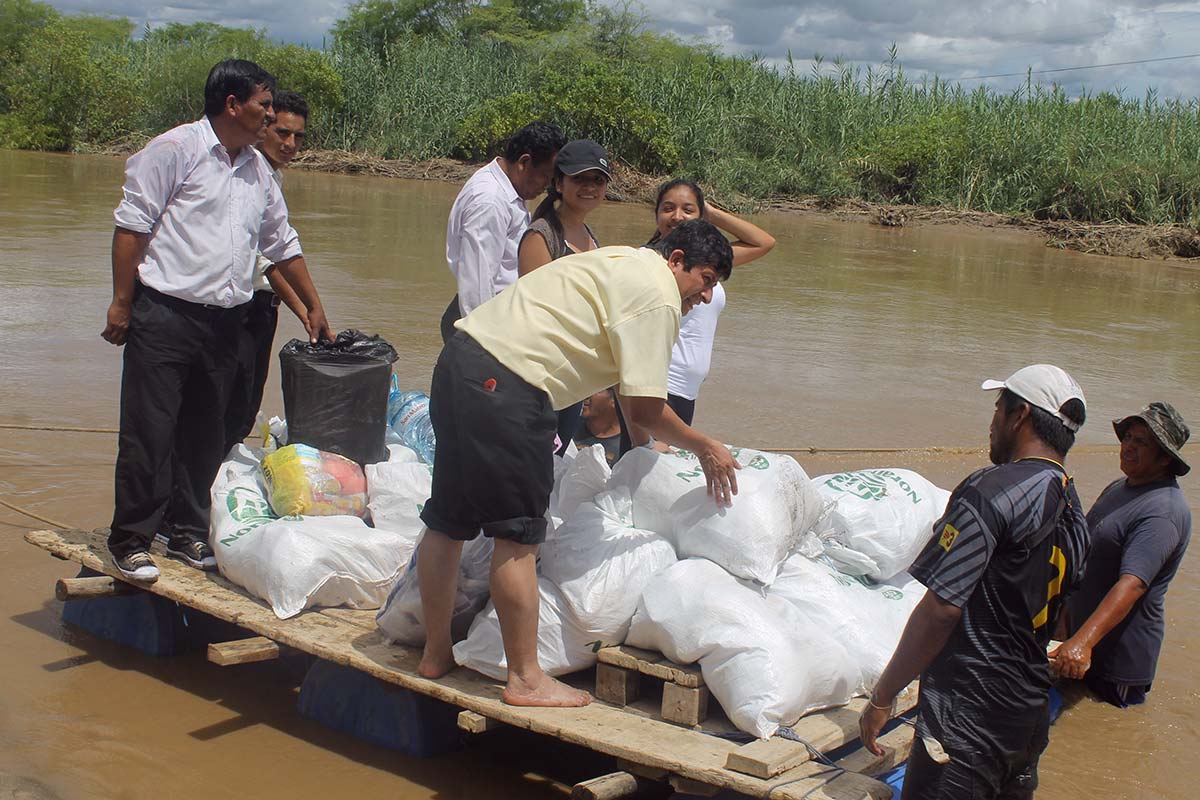
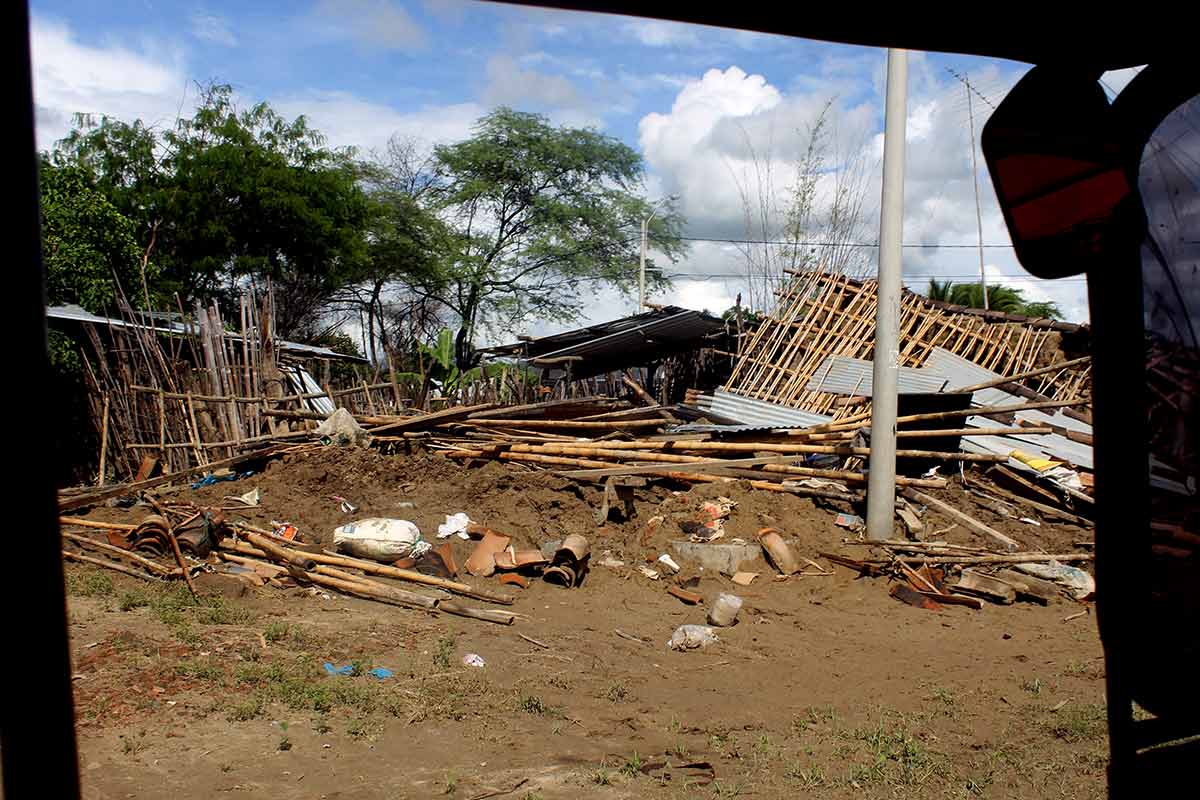
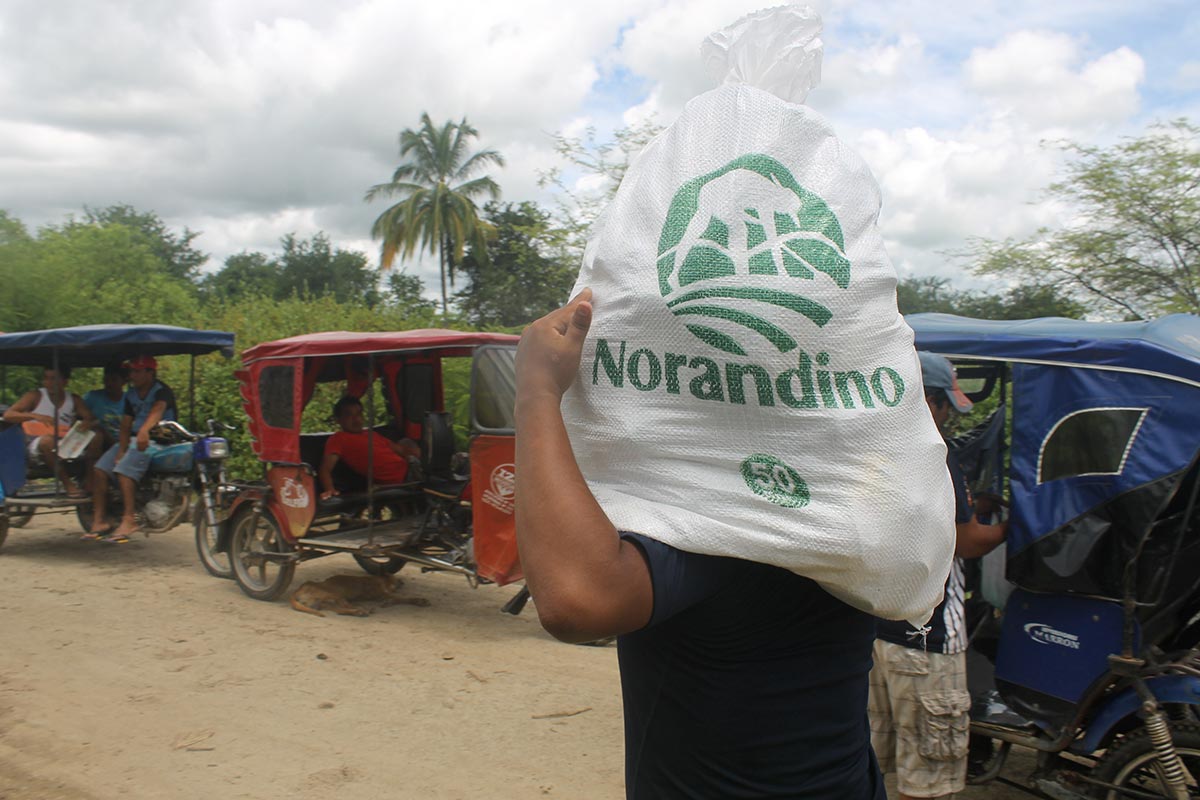
Ps. You can also donate directly. Transfer your desired amount o.v.v. 'Emergency Fund Peru' to bank account NL05RABO0141030690.
It can sometimes be quite difficult to snare a top chocolatier for a chat. The distance (Maastricht - Amsterdam) doesn't make it any easier either. But Ralph Hagen, one of Holland's top chocolatiers we might say, just makes time for this. And then the conversation for this Chef Special with the Maastricht native flows naturally.
'FROM ARCHITECTURE TO CHOCOLATE'
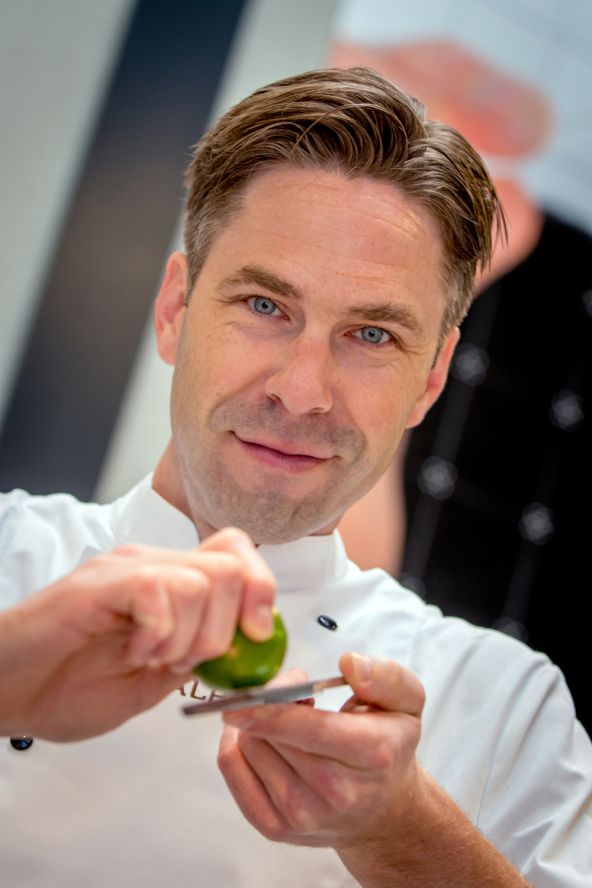
Ralph Hagen himself comes from the world of architecture, but a passion for good food was always there. His chocolate creations can even be found in Dubai. But fortunately, for now, his home base is just Maastricht.
How did you get into the world of chocolate?
During my student days, I preferred to spend my last money on a good piece of meat or a fine wine, rather than on beer in the pub. A real gourmet, that's what I am. Out of interest, I took a course on chocolate eight years ago. After that, the ball quickly started rolling. For five years now I have been running the Ralph Hagen Chocolatier shop. Recently we opened Darq. With it we want to create a great coffee and chocolate experience for customers. My brother-in-law has been involved for years and now runs the business.
How did you develop into a chocolatier?
I went on to train as a chocolatier, gave workshops and started coming up with more and more recipes. I gave a lot of thought to my house style. It had to be luxurious and exclusive. When you are just starting out as a chocolatier, you have no idea what chocolate to use. You choose accessible and affordable couvertures, like Callebaut or Valhrona. But then you start to learn and at a certain point you have to make a choice: either you keep using bulk chocolate, or you go for the good stuff.
"When you are just starting out as a chocolatier, you have no idea what chocolate to use."
But you also have to be able to sell it to your customers. That's why we tell our customers the story. Only that way do they understand why they are paying â'¬3.90 for a pastry and not â'¬2.- like at the bakery around the corner. Chocolate also needs a story. I do feel that customers increasingly value the story behind the chocolate.
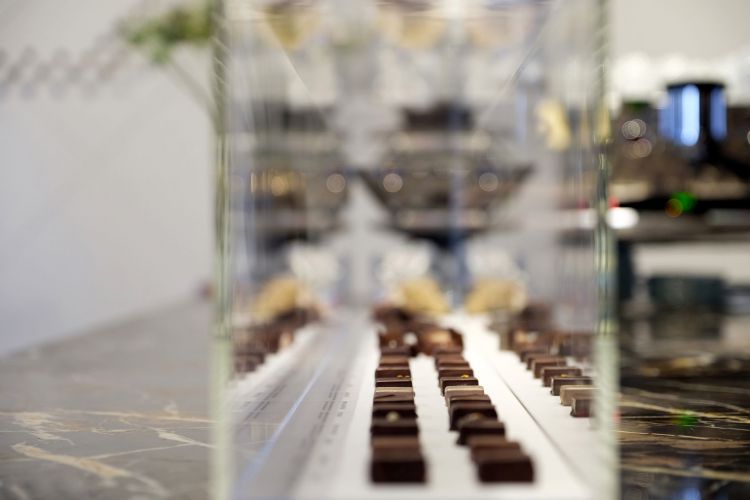
How do you know if you have good couverture in your hand?
You get trained in it. Just like a wine taster trains his taste buds by tasting a lot, it's the same with chocolate. You learn to recognise and distinguish between flavours. You also notice by the texture if the chocolate is good. Good chocolate doesn't taste bitter, not even with a high percentage. We only work with chocolate without additives, from a single origin or single estate, so you can recognise flavours like tobacco. Delicious. My favourite is still the Lam Dong from Marou.
What appeals to you about Chocolatemakers?
Besides the quality, it is certainly the story. The close contact that Rodney and Enver have with the farmers and the flavours of the cocoa that they bring out well. We work mainly with dark chocolate. Like the Awajun and the Cru Virunga of the Chocolatemakers. These chocolates are in the same price range as Valhrona, but their quality is way above that. My favourite from Chocolatemakers is definitely the Awajun. Powerful flavours of red fruit, coffee and nuts, it lends itself wonderfully to pronounced chocolates. I really like the Virunga pure as a basic couverture. You can use it for everything!
I also like to work with local, Dutch companies. We don't have our packaging made in China either, even though it is a lot cheaper. That is a choice. What really appeals to me is that Chocolatemakers also allows you to have your own recipe of couverture made.
You started only 5 years ago and are already so successful. What can we expect in the future?
I want to keep developing myself, keep improving recipes, keep looking for unique and beautiful products. We have also developed a Chocolate and Coffee experience in Maastricht, which we would like to continue as a franchise. There is already interest!
We are confident that it will be a successful 2017 for chocolatier Ralph Hagen. We will continue to follow him and look forward to the developments of the Chocolate and Coffee experience...

